A Complete Guide to the College Application Process
Find answers to common questions prospective college students have about deadlines, essays and more.

Getty Images
Students should generally begin working on applications the summer between their junior and senior year of high school, experts say.
The college application process can seem intimidating, especially if students don't have parents or siblings who have already been through it and can offer advice.
Since there are several steps, such as writing an essay and obtaining letters of recommendation , experts say a good way for students to get started is to create a to-do list during their junior year of high school.
"Once you can see it visually, the number of tasks and a schedule to do them, it simplifies a lot of things," says Christine Chu, a premier college admissions counselor at IvyWise, a New York-based education consulting company. "It will take away a lot of the anxiety."
Though there is often prep work, students generally begin working on college application tasks the summer between their junior and senior years of high school, experts say.
Here's what prospective undergraduates need to know about completing a college application.

What Are the Important College Application Deadlines?
High school seniors have multiple deadlines to choose from when applying to colleges.
The Step-by-Step Guide to Applying to College
Applying to college.
- Complete the FAFSA
- Fill Out the Common App
- Write a Standout College Essay
- Ask for Recommendation Letters
- Learn the Ins and Outs of Financial Aid
- Decipher College Tuition Costs
- Find Scholarships to Pay for College
Early Decision
First are early decision deadlines, usually in November. Students who apply via early decision, or ED, hear back from a college sooner than their peers who turn in applications later. ED admissions decisions often come out by December.
However, students should be aware that ED acceptances are binding, meaning an applicant must enroll if offered admission.
Some schools also have a second early decision deadline, ED II, which is also binding. The difference is in the timelines. ED II deadlines are usually in January, and admissions decisions often come out in February.
Early Action
Early action is another type of application deadline that tends to be in November or December, though some schools set deadlines as early as Oct. 15. Similar to early decision, students who apply via early action hear back from schools sooner. The difference is EA acceptances aren't binding.
Restrictive early action , which is uncommon, allows students to apply early but only to a single school (though there are exceptions). It's also nonbinding.
Regular Decision
Students can also choose to apply by a school's regular decision deadline, which is typically Jan. 1. Students who apply regular decision generally hear back from schools in mid-to-late March or early April. This is the most common way students apply to schools.
One other admissions policy to be aware of is rolling admissions . Schools with rolling admissions evaluate applications as they receive them and release admissions decisions on an ongoing basis. These schools may have a priority filing date, but they generally don't have a hard cutoff date for applications. The institutions continue accepting them until all spots in the incoming class are filled.
Regardless of the type of decision students pursue, it's important to start the application process early, says Denard Jones, lead college counselor at Empowerly, a college admissions consulting company. Jones previously worked in college admissions at Elon University in North Carolina and Saint Joseph's University in Pennsylvania.
“If you chunk it up and break down these tasks and can get ahead and start early, you’re not stifling your creativity because you’re trying to rush through to get everything done by October or November deadlines," he says. “Time management is something you’re going to have to deal with the rest of your life, regardless of what you go into.”
In deciding when to apply, as well as how many colleges to apply to, students should consider financial aid implications . Experts say if money is a concern, as it is for most families of college-bound students, applicants should choose nonbinding deadlines – EA and regular decision. This will enable families to compare financial aid offers from multiple schools.
Experts also suggest students research applicable scholarships, like those related to their hobbies , to help offset costs.
For regular decision deadlines, students typically have until May 1 to decide which school they will attend and pay an enrollment deposit.
Which College Application Platform Should I Use?
Students have several options when it comes to college application platforms.
The Common Application
One popular choice is The Common Application , which is accepted by more than 1,000 colleges, including some outside the U.S. Students fill out the Common App once and can then submit it to multiple colleges.
However, in addition to the main application, Common App schools often have a supplemental section, Chu says. The supplement sometimes includes additional essay questions, so students may need to budget time for more writing.
Some schools do not accept the Common App, such as the Massachusetts Institute of Technology and Georgetown University in Washington, D.C. Students have to fill out separate applications for these schools, generally through the school's website.
Coalition Application and Common Black College Application
Other application options include the Coalition Application, a newer platform accepted by 130 schools, and the Common Black College Application , accepted by most historically Black colleges and universities.
Additionally, some colleges have school-specific or university system-specific applications. For example, the University of California system has its own application – the only platform used by UC schools – and students can apply to multiple campuses with one application.
Students can visit a college's website to find out which application platforms are accepted. Also, the Common App , Coalition Application and CBCA websites list their partner schools.
What Do I Need to Know About the College Application Essay?
As part of the application process, most colleges require students to submit at least one writing sample: the college essay . This is sometimes referred to as a personal statement.
There's usually a word limit of around several hundred words for a personal statement. The main essay on the Common App should be around 650 words. The Coalition Application website says its essays should be between 500 and 650 words. Institution-specific supplemental essays typically have a word count of around 250 words.
Regardless of which application platform they use, students have multiple essay prompts from which to choose.
"The application essay prompts are broad and open-ended, and I think that's sometimes what challenges students the most," says Niki Barron, associate dean of admission at Hamilton College in New York. "But they're open-ended for a reason, and that's because we do really want to see what students choose to write about, what students feel is important."
Experts say students should try to tell a story about themselves in the essay, which doesn't necessarily mean writing about a big, impressive accomplishment.
Barron says the most memorable essays for her focus on more ordinary topics. "But they're done in such a self-reflective way that it gives me so much insight into who a student is as a person and gives me such a sense of the student's voice," she adds.
What Are the Other Key Components of a College Application?
Here are other parts of the college application that prospective students should be ready for.
Personal Information
In the first portion of a college application, students have to provide basic information about themselves, their school and their family.
High School Transcript
Colleges also ask for an official high school transcript, which is a record of the courses students have taken and the grades they have earned.
Admissions offices typically ask that a transcript be sent directly from the high school rather than from the student, says Geoff Heckman, school counselor and department chair at Platte County High School in Missouri. Students usually submit a transcript request to their high school's counseling office, but some schools use an online service, such as Parchment or SENDedu, that allows students to request the transcript be sent through a secure online provider, Heckman says.
Students can also send their transcript via a registrar if their school has one rather than through the counseling office.
Standardized Test Scores
Many schools require applicants to submit SAT or ACT scores, which are usually sent by the testing companies. The number of schools requiring standardized test scores has dropped dramatically as the coronavirus pandemic upended these exams.
Prospective students should know, however, that testing policies vary even when such exams are not required. Key terms to pay attention to include test-blind and test-optional . Test-blind means that scores will not be considered if submitted. By contrast, test-optional colleges do not require ACT or SAT scores but will consider them if submitted as part of an application.
Chu notes that "admissions officers still want to see test scores if possible" and that high marks will only help. Strong scores can lead to scholarships, in some cases, experts say. A good ACT or SAT score varies by college, and Chu encourages students to look at a college's first-year student profile to determine admission goals.
SAT-takers are allowed four free score reports each time they register for the exam. Students can select which schools they'd like their scores sent to before or up to nine days after the test, according to the College Board, which administers the standardized test. The fee for each additional score report is $12.
Similarly, students who sit for the ACT can send their score to up to four colleges at no cost, according to the ACT website . Additional score reports are $18 each. However, some students may qualify for a fee waiver , which allows test-takers to send additional score reports for free to colleges and scholarship agencies at any time during the college search process, according to the ACT website.
Letters of Recommendation
Colleges often ask students to submit two to three letters of recommendation .
Students should seek out recommenders – often they have to be teachers or counselors – who know them well and can comment not just on their academic abilities but also their personal qualities and achievements, Chu says.
It's a good idea for students to provide recommenders with a copy of their resume to help them cover all these bases, Heckman says.
Students should request letters of recommendation well before the application deadline. Chu advises at least two months in advance.
"The more time students can give the authors of those recommendations, I think the more thorough and helpful those recommendations are going to be for us," Barron says.
Information on Extracurricular Activities
College applications give students the chance to provide information on the extracurricular activities they participated in while in high school. In this section, students should detail all of the ways they spend their time outside of class, Barron says. This includes structured activities like sports or clubs, as well as family obligations such as caring for siblings or part-time employment, she says.
Some admissions officers spend significant time evaluating this section, Jones says, but he adds this is often the most overlooked part of the application. Many students rush through it and don't thoroughly explain the extent to which they were involved in an activity. Be sure to explain any leadership roles or accomplishments, he says.
"The extracurriculars are the things that they spend their entire high school career doing that lead up to these wonderful moments and accolades over time," he says. "So take the time and be detailed."
Do I Need to Submit a Resume?
On some college applications, it may be optional for students to upload a resume .
But much of the information generally contained in a resume – such as awards, work experience and extracurricular activities – is asked for in other parts of a college application, often in the activities section.
How Much Do College Application Fees Cost?
There's no set price for college application fees, which experts say typically range from $50 to $90 per application, though costs can stretch upward of $100 in some instances. Prospective students should check college websites to determine these individual fees.
How Can I Get a College Application Fee Waiver?
There are several ways students from low-income families can submit college applications for free .
Students who received SAT or ACT test fee waivers are eligible for college application fee waivers from the testing companies. The College Board sends such waivers automatically to students. Not all schools accept these waivers, but many do.
Similarly, the ACT has a fee waiver request form students and school counselors can fill out and send to colleges. The National Association for College Admission Counseling also offers a fee waiver request form .
In addition, eligible students can request a fee waiver within the body of some college applications, including the Common App.
There are other times schools waive application fees , and not just for low-income students. Students can sometimes get an application fee waived by participating in instant decision day events at their high school or on a college's campus. Applicants should also keep an eye out for free application periods in some states, when some colleges waive fees to apply.
Using a College Visit to Decide Where to Apply
A common piece of advice offered by admissions consultants and college officials alike is to tour a campus. Visiting a college can help prospective students get a sense of the culture and community and understand how they may or may not fit in. While it's not part of the formal application process, exploring a college can help students determine which schools to apply to.
Such visits, Chu says, offer a "glimpse into a day in the life" of students living and learning on those campuses. But in the absence of the opportunity to visit – say, due to cost restrictions or other travel limitations – students should consider virtual tours , which emerged as a popular option for applicants after the coronavirus pandemic began.
While virtual tours may offer fewer opportunities to make personal connections, students should still attempt to forge them.
"Virtual visits can be the next best thing" to an in-person tour, Barron notes. She also encourages applicants to "check college websites for offerings and opportunities to connect virtually with current students, admission staff, professors, coaches and others."
Searching for a college? Get our complete rankings of Best Colleges.
10 Majors With Highest Starting Salaries

College Application Process
- How to Complete a College Application
- Use the Common App to Apply to College
- What Colleges Look for In An Application
- Avoid These College Application Mistakes
- Tips for Choosing a Major
Tags: education , colleges , college applications , college admissions , students
2024 Best Colleges

Search for your perfect fit with the U.S. News rankings of colleges and universities.
College Admissions: Get a Step Ahead!
Sign up to receive the latest updates from U.S. News & World Report and our trusted partners and sponsors. By clicking submit, you are agreeing to our Terms and Conditions & Privacy Policy .
Ask an Alum: Making the Most Out of College
You May Also Like
How to decide if an mba is worth it.
Sarah Wood March 27, 2024

What to Wear to a Graduation
LaMont Jones, Jr. March 27, 2024

FAFSA Delays Alarm Families, Colleges
Sarah Wood March 25, 2024

Help Your Teen With the College Decision
Anayat Durrani March 25, 2024

Toward Semiconductor Gender Equity
Alexis McKittrick March 22, 2024

March Madness in the Classroom
Cole Claybourn March 21, 2024

20 Lower-Cost Online Private Colleges
Sarah Wood March 21, 2024

How to Choose a Microcredential
Sarah Wood March 20, 2024

Basic Components of an Online Course
Cole Claybourn March 19, 2024

Can You Double Minor in College?
Sarah Wood March 15, 2024

Our Services
College Admissions Counseling
UK University Admissions Counseling
EU University Admissions Counseling
College Athletic Recruitment
Crimson Rise: College Prep for Middle Schoolers
Indigo Research: Online Research Opportunities for High Schoolers
Delta Institute: Work Experience Programs For High Schoolers
Graduate School Admissions Counseling
Private Boarding & Day School Admissions
Online Tutoring
Essay Review
Financial Aid & Merit Scholarships
Our Leaders and Counselors
Our Student Success
Crimson Student Alumni
Our Reviews
Our Scholarships
Careers at Crimson
University Profiles
US College Admissions Calculator
GPA Calculator
Practice Standardized Tests
SAT Practice Test
ACT Practice Tests
Personal Essay Topic Generator
eBooks and Infographics
Crimson YouTube Channel
Summer Apply - Best Summer Programs
Top of the Class Podcast
ACCEPTED! Book by Jamie Beaton
Crimson Global Academy
+1 (646) 419-3178
Go back to all articles
The Ultimate College Application Timeline: A Step-by-Step Guide
/f/64062/1920x1080/46de5b3772/yale-background.png)
If you’re feeling overwhelmed by the college application process, you're not alone. It's challenging to keep track of so many deadlines, documents, and decisions. That's why we've created the ultimate college application timeline — to help you navigate this stage with confidence. This timeline keeps you on track by breaking down the application process into small, manageable steps. Maybe you're just starting to think about college. Or maybe you feel like you’re drowning in the application process. Either way, this guide will give you the tools you need to make your college dreams a reality. Read on and breathe a sigh of relief!
Freshman and Sophomore Year: Laying the Foundation
The first two years of high school are about exploring your interests and building a strong academic foundation. This is also a great time to consider your “personal brand” — or the story you’ll tell about yourself when you build your application.
College may be years away, but what can you do during these two years to prepare?
Take Challenging Courses
Admissions officers don’t just look for impressive test scores and a high Grade Point Average (GPA) . They want to see that you chose challenging courses, relative to what your school offers — and that you did well in them. If your school offers AP courses, plan to take as many as you can. Outside the core curriculum, prioritize courses that align with your interests.
Explore Extracurricular Activities
In case you haven’t heard: being “well-rounded” is no longer the goal. Now, it’s all about being “well-lopsided.” This means excelling in the classroom and on campus, but also having an in-depth passion or skill that goes deeper than your peers. Admissions officers want to see authentic interest and initiative — something you can’t fake by sampling activities here and there.
Once you land on some areas of interest, choose activities in which you can demonstrate leadership. You can do this through institutional routes, like by becoming team captain or club president. But if that’s not for you, don’t stress! You can also:
- Start a podcast
- Start a business
- Conduct a research project
- Take an online coding course
For more inspiration, check out this blog post for 18 examples of extracurriculars that look great on college applications.
Consider Potential Career Paths and College Majors
Start thinking about which career you might like to pursue. You might:
- Attend career fairs.
- Job shadow professionals.
- Take advantage of online resources like Crimson Careers to learn about different industries and areas of study.
This exploration will help you make informed decisions about your future. It’ll also show admissions officers that you’ll be a contributing member of your school’s community!
Not sure what to major in yet? This quiz can help you narrow it down!

Build Relationships with Teachers and Counselors
Trusted adults and mentors can give valuable guidance throughout the college application process. Seek their advice when choosing courses or considering extracurricular opportunities. Show respect in class, ask questions, and attend office hours to build a deeper connection.
Developing strong relationships with your teachers and counselors will also enable them to write strong recommendation letters on your behalf when the time comes.
Consider Your Personal Brand
You probably didn’t see this one coming! You may not be a business, but everyone has their own “personal brand.” People perceive you in a certain way. By taking charge of your personal brand, you can determine how admissions officers think and feel when they come across your application.
Freshman/Sophomore Year: 2-3 Years Before Application Year
Junior year: researching schools and preparing for standardized tests.
You’ve made it halfway through high school, and on to the most important parts of the college application process! It’s time to get really organized and take your standardized tests.
First, create a college application checklist. Include important deadlines, required documents, and any other materials you’ll need to submit.
Next, think about which standardized tests you need to take — and when you should take them. Most colleges require either the SAT or ACT. Some may also require subject tests. Research the testing requirements of the colleges you're interested in and create a study plan that allows you to adequately prepare.
To maximize your score potential, consider:
- Enrolling in test prep courses
- Using online resources
- Working with a tutor
Visit Colleges
Junior year is also a great time to start visiting colleges and attending college fairs. Visiting a campus helps you experience the culture and feel of a school in a way that online research can’t. During your visit, do your best to connect with current students. Read more about how to make the most out of your college visit here. But if you can’t make it to a campus, no big deal! Check out our Youtube series A Day in the Life to get a taste of life at your target school.
Summer Before Senior Year: Narrowing Down Your Options
The “lull” of summer before senior year is an ideal time to research colleges without having to balance academics. Create a list of criteria that are important to you, such as:
- Academic programs.
- Extracurricular offerings.
Use online resources like college websites to gather information about schools that align with your criteria.
TIP: Some schools have programs that allow you to connect to current students or alumni. Reach out to the admissions office to learn more about this possibility.
Once you have a list of potential colleges, dive a little deeper. Attend virtual information sessions and explore social media accounts to get a sense of the campus culture and community. This research will help you determine which colleges are the best fit for you. Then, you can tailor your college application materials accordingly.
As you narrow down your options, consider creating a spreadsheet or using an online tool (like Asana ) to keep track of important information such as application deadlines, required essays, and financial aid opportunities. This will help you stay on top of the college application process.

Junior Year: 1 Year Before Application Year
Senior year: submitting applications, finalize your college list.
Application year has finally arrived! It's time to finalize your college list and start building your application. Hopefully you’ve made your Common App account by now! Review your research and make the final call on which colleges you’ll apply to.
Tip: Consider applying to a mix of reach, target, and safety schools to increase your chances of acceptance.
Prepare Application Materials
Next, gather all the necessary materials for your college applications, including:
- Transcripts: Including grade scale
- Test scores: Only submit if they are within the average range or higher than those accepted to your target schools.
- Recommendation letters: Reach out to those writing them to make sure they have everything needed.
- Essays: Start working on these EARLY to allow for multiple drafts and revisions.
Once you have all your materials, create a master calendar. Include all the application deadlines and requirements for each college.
TIP: Consider setting reminders for important deadlines to avoid any last-minute stress!
Submit Applications
Take the time to carefully review each application before submitting. Inaccurate or incomplete information could get your application tossed! Proofread your essays and have someone else read them as well to catch any errors or inconsistencies.
Complete Financial Aid Forms
In addition to the college applications, you'll also need to complete financial aid forms such as the Free Application for Federal Student Aid (FAFSA) or the CSS Profile at this time. These forms will determine your eligibility for financial aid, including grants, scholarships, and loans.
Gather all the necessary financial documents and follow the instructions carefully!
Wait for Admissions Decisions
The spring of senior year is filled with anticipation as you wait for admissions decisions to roll in. Remember: this is a stressful time for many students, and it's important to take care of yourself. Stay engaged in your schoolwork, continue participating in extracurricular activities, and spend time with friends and family!
Compare Financial Aid Offers
As the admissions decisions start arriving, celebrate your acceptances and carefully consider your options. Take the time to compare financial aid offers and weigh the pros and cons of each college. Visit campus again if possible, or attend virtual sessions to get a better sense of the colleges that have accepted you.

Senior Year: Application Year!
Making the final decision: choosing the right college for you.
When it comes time to make your final decision, trust your instincts and choose the college that feels like the best fit for you. Consider factors such as:
- Campus culture.
- Financial aid.
- Career opportunities.
Remember that this decision is about finding the college where you will thrive and grow both academically and personally.
Before accepting your offer of admission, be sure to carefully review any financial aid packages. You’re surely excited, but consider the long-term implications of your decision. Contact the college's admissions office if you have any questions. Once you've made your decision, take a deep breath and celebrate!
Tips for a Successful College Application Process
Keep these tips in mind throughout the college application process:
1. Start early: Give yourself plenty of time to research colleges, prepare for tests, and complete applications. This is especially true for your essays! Procrastination can make you stressed and tarnish the quality of your work.
2. Stay organized: Use calendars, checklists, and online tools to keep track of important deadlines and requirements.
3. Seek help when needed: Reach out to teachers, counselors, or college admissions professionals for guidance and support. It’s normal to feel lost, and they are there to help you succeed.
4. Be authentic: When building your application, be true to yourself. Admissions officers value authenticity. Seriously — they want to get to know the real you!
5. Take care of yourself: The college application process can be stressful. Please prioritize your mental and physical well-being. Make time for self-care activities, and lean on your support system when needed.
Conclusion: Celebrating Your Achievements and Looking Forward to the Future
Congratulations! If you’ve followed this ultimate college application timeline, you've successfully navigated the college application process. You are one step closer to achieving your career goals! Celebrate your hard work and accomplishments, knowing that you've put your best foot forward.
For even MORE guidance on getting into a top university, including timelines and application deadlines, download our FREE eBook, US & UK University Admission Planner.
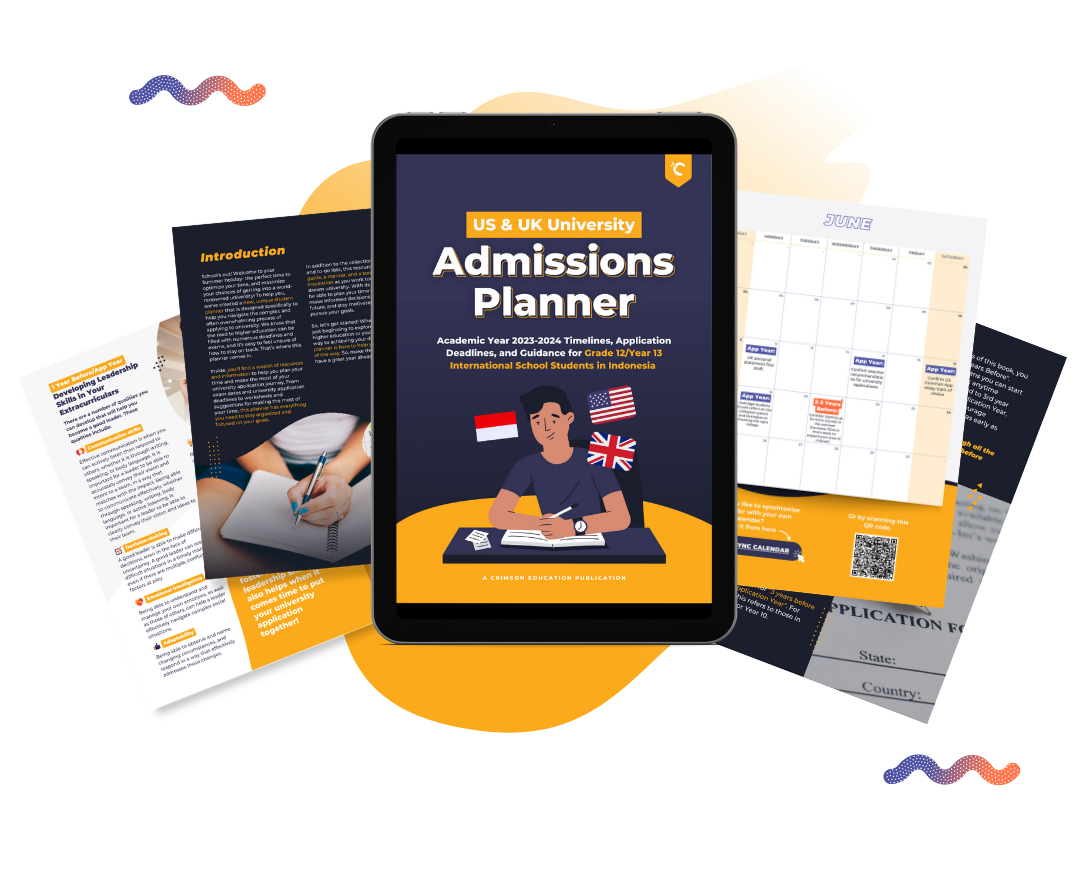
Further Reading:
- Read more about the best ways to spend your summer in preparation for college applications
- Take our mini SAT practice test
- Unlocking Excellence: Your Roadmap to Stellar Grades
- Do you want to study overseas? Learn more about studying in the US and UK by reading our FREE US vs. UK eBook.
- Learn how to create a list of safety, target, and reach schools
More Articles
Cornell university admits 5,139 students to class of 2028.
/f/64062/800x800/51959eae1e/cornell-university-blogs.jpg)
Stanford Acceptance Rate Results for Class of 2028
/f/64062/1181x709/9cdadcb30c/melhores-universidades-dos-eua-stanford.png)
Dartmouth College's Acceptance Results for the Class of 2028
/f/64062/800x450/0d1055876b/dartmouth-blogs.jpg)
US COLLEGE ADMISSIONS CALCULATOR
Find a university that best suits you!
Try it out below to view a list of Colleges.
Enter your score
Enter your SAT or ACT score to discover some schools for you!
Plan for college
It’s never too early — or too late — to start planning. Our college planning tools will guide you through every step of the college application and admissions process.

Invest in your future
We know it can seem overwhelming, but you’re not the first to question if you’ll find the right college, succeed and get the career you want. You might even be wondering if college is worth it. At least that one’s easy: The answer is always “yes.”

Making college affordable
The price tag can be the most daunting part of your journey to college, but there are more options out there than you might know. Our planning tools can help you find them and understand how college can be made more affordable.
Your path to college
No matter where you are in the process, you’re already on the path to college. Take a moment to celebrate that. It means you already have the ability to learn, the desire to explore, the persistence to grow, the determination to focus, and the motivation to apply.

Ready to apply?
You're ready to start your journey, and we'll be with you every step of they way. Here's what you need to get started on your application. We've put together a step-by-step guide to help make it as easy as possible.
For families
Each family member has an important role to play in their child’s journey to college. No one knows them better than you, so follow your instincts and let past experience be your guide. And while they depend on you, you can depend on us.
TR Istanbul
Recently viewed courses
Recently viewed.
Find Your Dream School
This site uses various technologies, as described in our Privacy Policy, for personalization, measuring website use/performance, and targeted advertising, which may include storing and sharing information about your site visit with third parties. By continuing to use this website you consent to our Privacy Policy and Terms of Use .
COVID-19 Update: To help students through this crisis, The Princeton Review will continue our "Enroll with Confidence" refund policies. For full details, please click here.
Enter your email to unlock an extra $25 off an SAT or ACT program!
By submitting my email address. i certify that i am 13 years of age or older, agree to recieve marketing email messages from the princeton review, and agree to terms of use., college admissions guide: process and prep.
College admissions is all about finding a school that fits you. As an applicant, you are looking for an environment where you can thrive academically and personally, and it is the job of an admission officer to identify students who will make great additions to a unique campus community.
Learn what you can expect from each stage of the college admissions process, and find out what students on our College Hopes & Worries Survey have to say about applying to college.

1. College Planning
Your path to college begins your first year in high school as you make yourself college ready. Grades and test scores are important factors in college admission, but admissions officers are also looking for curious and engaged candidates who will round out a diverse first-year class.
Most admissions officers report that, along with your GPA , the rigor of your high school curriculum is the most important element of your college application.
- Choose your high school classes carefully. Make sure to challenge yourself with honors classes, AP classes, and IB classes when they are available.
- Grades matter for all 4 years. When colleges review your transcript, they typically focus on your sophomore and junior year grades but will still see the others.
- “Start early,” advise the respondents to our College Hopes & Worries Survey. Focus on getting good grades, and get homework help when you need it to stay on track.
- Even if you had a rough first year, there’s still time to turn your grades around. Many schools will reward your upward trajectory.
Read More: Get Homework Help
Test Scores
SAT and/or ACT scores take the lead, but admissions officers consider your performance on other standardized tests as well.
- The PSAT is optional your sophomore year, but your junior year PSAT scores can qualify you for scholarship programs such as the National Merit ® Scholarship, which can help cover the cost of tuition and get you into a great college. The best way to prep for the PSAT is to prep for the SAT.
- Good performances on AP exams are one indicator for admissions officers of your potential for achieving in college. More than 1,400 colleges and universities accept high scores on AP exams for course credits.
- Schools accept both the SAT/ACT equally, so it’s completely up to you which test you take (you can even take both!). The essay sections of both tests are optional, but some colleges may require it.
- Test optional schools: Schools that are test optional do not require standardized test scores as part of a complete application. Since your test scores could qualify you for merit scholarships (even at test optional schools), it’s still a smart idea to take—and prep for!—at least one standardized test.
Extracurriculars
What you do with your time outside the classroom shows colleges who you are and what qualities you’ll bring to campus.
- Commitment to a sport, hobby, religious organization, or job over four years of high school is key. Colleges would much rather see you excited about a few worthwhile endeavors than marginally involved with a ton of clubs.
- If an after-school job is cutting into your extracurricular time, don’t worry! Work experience demonstrates maturity and responsibility on your college application.
- Summer counts, too! Some students enroll in university programs to start earning college credits. Others volunteer or find a summer job. Whatever you do, your summer activities can make your college application rise to the top of a competitive applicant pool.
2. College Search
No two students are exactly alike, and no two schools are exactly alike. What are the features of your best-fit college ?
- Conversations with your college counselor about what’s important to you in terms of academics, campus culture, and financial aid will help guide your overall college search.
- Research is a must. Attend college fairs, consult our college profiles , and visit campuses to find and compare potential schools. Check out majors, dorms, clubs, career services, and other key features.
- You’ll end up with a list of dream, match, and safety schools —any of which i s a great fit for your specific personality and interests .
- How many colleges do students apply to? According to our 2021 College Hopes & Worries Survey, 40% of students plan to apply to 5-8 schools, while 32% will apply to 9 or more colleges.
Read More: Browse College Profiles
3. College Applications
When it comes time to apply, you’ll have some decisions to make.
- Will you apply early? Many colleges allow applicants to submit their materials for an early deadline (sometime in the fall) that falls before the regular deadline (usually sometime in January or February). Learn about early action vs early decision .
- The key components of the college application are your transcript, score reports, letters of recommendation, and application essay. Colleges will also ask you to list your extracurricular activities. Learn everything you need to know about college application .
- Always check admissions requirements with each individual school.
- The Common Application makes it easy to apply to multiple schools, but schools will typically have different supplemental essay topics or test score requirements.
- You may decide to interview with an admissions representative or college alumni member to learn more about schools—and to help schools learn more about you.
Read More: 24-Hour College Essay Review
4. Applying for Financial Aid
Debt has been the biggest concern among respondents to our College Hopes & Worries survey for the past three years. Educate yourself on how financial aid works , so you can make the right choices for you and your family.
- Schools usually have their own net-price calculators so that families can get a sense of what their out-of-pocket costs would look like. Check out each prospective school's financial aid website as you research your college list.
- Be aware that applying to college and applying for financial aid are two separate processes.
- You’ll start with the Free Application for Federal Student Aid ( FAFSA ), which is released on October 1 of every year. The form asks for information about your income and the size of your household to determine your expected family contribution (EFC) toward your college tuition.
- Schools may also use their own forms, or use the CSS Profile for non-federal aid.
- grants and scholarships
- federal work-study
- student loans
- Plenty of outside organizations offer scholarships tailored to academic interests, talents, extracurricular activities, career goals, geographic location, and many more factors. Keep an eye on deadlines which could fall as early as the summer before senior year.
Read More: FAFSA Deadlines, Dates, and FAQs
5. Choosing Your School
Once the notifications start rolling in, celebrate your acceptances with your college counselor, and make your final decision (typically by May 1, “Decision Day”).
- How to decide? 40% of respondents told us they’d choose the college that's the "best for their career interests" and another 40% said they'd choose the college that’s the "best overall fit."
- Get excited about the schools that accepted you by talking to real students on campus, learning more about key programs and on-campus activities, and touring dorms and other facilities.
- Compare financial aid packages to determine which one makes the most financial sense for you.
- If your dream college waitlisted you, don’t despair! You could still be accepted from the waitlist, as students notify the college whether they accept or decline. Check out our college waitlist strategies .
- Students may be deferred (their application held to be evaluated at another time) if a college decides they need more information (like senior year grades or test scores) before making their decision.
- You may also decide to defer your acceptance for a year to work, travel, or volunteer. Learn more about taking a gap year .
- College
- Applying to College

Explore Colleges For You
Connect with our featured colleges to find schools that both match your interests and are looking for students like you.

Career Quiz
Take our short quiz to learn which is the right career for you.

Get Started on Athletic Scholarships & Recruiting!
Join athletes who were discovered, recruited & often received scholarships after connecting with NCSA's 42,000 strong network of coaches.

Best 389 Colleges
165,000 students rate everything from their professors to their campus social scene.
SAT Prep Courses
1400+ course, act prep courses, free sat practice test & events, 1-800-2review, free digital sat prep try our self-paced plus program - for free, get a 14 day trial.

Free MCAT Practice Test
Thank you! Look for the MCAT Review Guide in your inbox.
I already know my score.

Enrollment Advisor
1-800-2REVIEW (800-273-8439) ext. 1
1-877-LEARN-30
Mon-Fri 9AM-10PM ET
Sat-Sun 9AM-8PM ET
Student Support
1-800-2REVIEW (800-273-8439) ext. 2
Mon-Fri 9AM-9PM ET
Sat-Sun 8:30AM-5PM ET
Partnerships
- Teach or Tutor for Us
College Readiness
International
Advertising
Affiliate/Other
- Enrollment Terms & Conditions
- Accessibility
- Cigna Medical Transparency in Coverage
Register Book
Local Offices: Mon-Fri 9AM-6PM
- SAT Subject Tests
Academic Subjects
- Social Studies
Find the Right College
- College Rankings
- College Advice
- Applying to College
- Financial Aid
School & District Partnerships
- Professional Development
- Advice Articles
- Private Tutoring
- Mobile Apps
- Local Offices
- International Offices
- Work for Us
- Affiliate Program
- Partner with Us
- Advertise with Us
- International Partnerships
- Our Guarantees
- Accessibility – Canada
Privacy Policy | CA Privacy Notice | Do Not Sell or Share My Personal Information | Your Opt-Out Rights | Terms of Use | Site Map
©2024 TPR Education IP Holdings, LLC. All Rights Reserved. The Princeton Review is not affiliated with Princeton University
TPR Education, LLC (doing business as “The Princeton Review”) is controlled by Primavera Holdings Limited, a firm owned by Chinese nationals with a principal place of business in Hong Kong, China.

Choose Your Test
Sat / act prep online guides and tips, the 7 steps of the college application process.
College Admissions

If you want to successfully complete the college application process and make yourself as competitive for college admission as possible, you’ll be directly or indirectly working on your college applications well before the deadlines approach. In fact, if you have any intention of applying to selective colleges, this process can really begin as early as your freshman year.
Getting ready to apply to college can feel intimidating, but if you follow some tried-and-true advice, you’ll be ready to knock your college applications out of the park! In this article, we’ll describe all of the tasks you should complete to maximize your chances of getting into the best possible college, including how to do the following:
- Choose the best classes to take during high school
- Prioritize getting good grades
- Excelling in extracurriculars
- Acing standardized tests
- Getting superb recommendations
We’ll also explain when you should start researching colleges and complete these tasks so that you’re able to stay on top of the application process.
There’s a lot to cover, so let’s get started!
Feature image source: Scott Savage /Flickr
Overview of the College Application Process
College applications have many moving parts. The major components of your application that will be evaluated in the admissions process are your transcript, your standardized test scores, your recommendations, your personal essay, and your extracurricular activities . We'll walk you through all the steps you need to take to strengthen each component of your application. If you follow our advice and timeline, you'll make yourself an extremely strong candidate for any college.
Read on to learn the specific things you should be doing and when to do them.
Take the Right Classes
- When to start: Before freshman year
Colleges will look at the classes you took during high school to get a sense of your college readiness. The most selective schools want to admit students who have challenged themselves and are willing to push themselves academically .
You don’t have to take every single honors and AP course, but if you want to get into a top college, you need to show that you can excel in some of the hardest courses that your school offers. Spend ample time considering which classes to take and whether those classes will allow you to pursue your academic interests and reach your college goals. Specifically, consider which science , math , history , foreign language , English , elective , and AP classes you should take.
In fact, you should begin thinking about which classes to take before your freshman year of high school. Now, we know: it can be tough to know what you want to study before you even start high school! A good way to decide which advanced classes to take is to look at your past grades and interests. For instance, if you made straight As in junior high math, taking honors math in high school may be a good fit for you. If you got really excited about lab days in seventh grade biology, signing up for honors biology would be the thing to do.
Additionally, the math or foreign language class you take during your freshman year will determine what level you’re able to reach when you’re a senior in high school. For these reasons, it’s important to choose your high school classes with your plans for college in mind.

Challenging yourself makes you stronger.
Get Good Grades
- When to start: Freshman year
Focusing on making good grades is also crucial to your profile as a college applicant. The majority of colleges will focus on your sophomore and junior year grades, but schools will also look at your freshman and senior year grades . Also, your high school GPA is typically calculated from your grades from all four years of high school. Colleges view your high school GPA as a strong predictor of your potential for academic success in the future.
If you take AP courses, you want to try to achieve top grades in those classes as well . Good grades in AP classes show colleges that you’re capable of tackling college-level coursework.
In general, you should try to maintain the mentality that every semester counts, and do as well as you can each year of high school. For inspiration and useful information, check out our article on how to get a 4.0 GPA and better grades .

Excel in Extracurriculars
Other than your grades and test scores, your extracurricular activities probably have the biggest influence on the quality of your college application. Colleges, especially the most selective ones, want their students to have exceptional achievements outside of the classroom, and they’re looking for individuals who use their leisure time to pursue their passions .
You should participate in extracurricular activities throughout high school. Colleges prefer to see a sustained commitment to your activities. It’s more impressive to do one activity for four years and continue to show growth in that activity than it is to do four different activities for one year each.
Some students believe that to appear well-rounded they need to do a ton of extracurriculars. However, for college admissions, it may be more advantageous for you to develop a “spike” and exhibit excellence in a particular activity or field .
Instead of playing every sport, writing for the school newspaper, participating in speech and debate, and joining student government, you may be better served to focus your extracurricular efforts on becoming a superstar field hockey player. Or, if you're passionate about science, you may want to spend your free time creating an award-winning project for a science fair or competing in the Science Olympiad .
If you have multiple interests, it's perfectly acceptable to explore all of the m . Just keep in mind that you don't have to do every possible extracurricular to get into a great college, and, generally, reaching the highest level in a given activity requires such an incredible time commitment that you won't have time to participate in many other activities outside of school.
If you’re struggling to find extracurricula rs, talk to your school’s guidance counselor. They can help you identify your strengths and select extracurriculars that you can excel in. Also, when you’re filling out your college applications, know how to write about your extracurriculars. You’ll want to explain how your extracurriculars have helped prepare you for college in ways that your regular classes haven’t.

Maybe the marching band is a good extracurricular for you. Image source: Utah Department of Transportation /Flickr
Rock Your Standardized Tests
- When to start: Sophomore year
Even though some colleges have minimized the importance of standardized tests in admissions, your standardized test scores are still a crucial component of your application to most college s . It’s a good rule of thumb to start studying for the SAT/ACT during your sophomore year. Also, you may want to take the PSAT or PreACT during your sophomore year to familiarize yourself with standardized tests.
To give yourself the best chance of reaching your target score and to decrease your stress level, we recommend first taking your SAT/ACT in the fall of your junior year.
If you don’t reach your target score on your first attempt, you can do more studying and retake the test in the spring of your junior year. If you achieve the score you’re hoping for by the end of your junior year, you’ll have more time during your senior year to focus on your schoolwork, extracurriculars, and college applications . If you’re still unsatisfied with your score at the end of your junior year, you have more time to study over the summer and retake the test in the fall.
Make sure you know when is the last time you can take the SAT/ACT. Your deadline for taking the SAT/ACT is dependent upon the specific schools you apply to and whether or not you apply early.
For instance, to meet the early decision deadlines for most schools, you have to take the SAT/ACT by October or November of your senior year. For regular decision, you have to take the SAT/ACT by December of your senior year. However, there are a few colleges that will accept the January SAT or the February ACT. You’ll need to carefully peruse a school’s admissions website to ensure you know the correct application deadlines.
If you’re considering applying to a school that requires SAT Subject Tests , I also recommend taking those by the end of your junior year.
Research Colleges
- When to start: Junior year
Before you apply to college, you need to know which colleges will be the best fit for you. You can start learning about colleges as early as your freshman year, especially if you want to get an idea of what you need to do to be a competitive applicant, but you should actively research colleges starting in your junior year at the latest .
Use college search websites, finders, guidebooks, and ranking lists to help find college options. You can also use college fairs and tours to gain more exposure to different colleges and get a better idea of the types of schools that are out there.
I t’s also important to consider your priorities as an applicant as well as your academic strengths and interests. Doing this will help you identify schools that align with your goals as a future college student and, ultimately, narrow down your list of schools to apply to.
By the start of your senior year of high school, you should have a list of colleges to apply to. We recommend applying to reach schools, target schools, and at least a couple of safety schools.

College Fair fun. Image source: Patrick Giblin /Flickr
Get Superb Recommendations
- When to start: Spring of junior year
Recommendations are also an important part of your college applications. Colleges often ask for anywhere from two to three letters of recommendation from a teacher, coach, or other mentor figure who can attest to your character as a student and person. To be prepared for this part of the college application process, you’ll want to research what constitutes a good recommendation and how to ask for a letter of recommendation.
It’s best to ask teachers to write your recommendations in the spring of your junior year if you want to get thoughtful and well-written letters. By asking early, you’ll be able to get your teachers to agree before they become inundated with requests during your senior year , and they’ll have more time to think about what they’re going to write.
Make sure you know whom to ask to write your letters. For instance, if you’re choosing to take a spike approach as a math champ, you might ask your Calculus teacher to write one of your recommendation letters. At the beginning of your senior year, you can submit formal requests for your recommendation letters.
Also, for your reference, check out these recommendation letters that got a student admitted to Harvard and other Ivy League schools .
Write Outstanding College Essays
- When to start: Summer before senior year
The personal essay, sometimes also called the personal statement or writing sample, is the most challenging and time-consuming part of the actual application process. These essays give schools a deeper view into who you are as a student and applicant , so it’s crucial to dedicate time and effort to writing them.
To write excellent college essays, learn as much as you can about the college essay and how to come up with great college essay ideas. It’s also important to learn about the less common types of college essays, such as supplemental essays, that are often required by selective schools in order to determine your fit with the school’s culture and mission.
We recommend starting to work on all of your college essays during the summer before your senior year. This will give you ample time to polish and perfect them before application deadlines arrive.
College essays tend to take much longer than you’d anticipate, and you’re less likely to be able to write good essays if you wait until the last minute to start. Because of this, the absolute latest you'd want to wait to start your college essays is the beginning of your senior year , as soon as you’ve finalized the list of colleges you’re applying to.
As soon as you have complete drafts of your college essays, ask a trusted teacher or counselor to proofread them. Going over your essays with someone who knows your experiences and potential as a student can help you represent yourself authentically. Finally, you’ll also need time to revise them. Revising your essays (once, at minimum!) before submitting them is a crucial part of the process.
So when should you have your essays completed in order to meet your application deadlines? If you’re applying early, most deadlines are in early to mid-November. If you’re applying regular decision, most deadlines are around January 1.
Make sure you keep track of deadlines for the schools you’re applying to because deadlines will vary. For example, the application deadline for University of California schools is November 30.

Final Thoughts and Additional Steps
For most students, the steps listed above are the major components of the college application process. However, some students may have to do extra work depending on your situation and the colleges you apply to . For example, if you're an aspiring college athlete, you may participate in the athletic recruiting process. If you're applying to an art school or program, you may have to make an art portfolio.
Also, some colleges recommend or require interviews. If you interview, research what questions to ask and prepare for. You can learn more about how the interview process works at different schools by contacting an admissions counselor.
Students seeking financial aid and scholarships will have to go through the financial aid process and complete additional applications. These add more time to the college application process and, as such, should factor into your planning and prep for applying to schools.
You should find out the status of early applications in mid-December and regular applications by late March. Then, you may find yourself with multiple options and have to face the task of choosing a college.

What's Next?
If you're looking for an example of what you need to do to get into the best colleges, check out this successful Harvard application .
Perhaps you've heard people reference Ivy League schools, but you're not exactly sure what they are. Learn about Ivy League colleges and read our article ranking the Ivy League schools .
Finally, you'll want to think about what you should major in! This guide can help you choose a major for your college application (and possibly even beyond).

Justin has extensive experience teaching SAT prep and guiding high school students through the college admissions and selection process. He is firmly committed to improving equity in education and helping students to reach their educational goals. Justin received an athletic scholarship for gymnastics at Stanford University and graduated with a BA in American Studies.
Student and Parent Forum
Our new student and parent forum, at ExpertHub.PrepScholar.com , allow you to interact with your peers and the PrepScholar staff. See how other students and parents are navigating high school, college, and the college admissions process. Ask questions; get answers.

Ask a Question Below
Have any questions about this article or other topics? Ask below and we'll reply!
Improve With Our Famous Guides
- For All Students
The 5 Strategies You Must Be Using to Improve 160+ SAT Points
How to Get a Perfect 1600, by a Perfect Scorer
Series: How to Get 800 on Each SAT Section:
Score 800 on SAT Math
Score 800 on SAT Reading
Score 800 on SAT Writing
Series: How to Get to 600 on Each SAT Section:
Score 600 on SAT Math
Score 600 on SAT Reading
Score 600 on SAT Writing
Free Complete Official SAT Practice Tests
What SAT Target Score Should You Be Aiming For?
15 Strategies to Improve Your SAT Essay
The 5 Strategies You Must Be Using to Improve 4+ ACT Points
How to Get a Perfect 36 ACT, by a Perfect Scorer
Series: How to Get 36 on Each ACT Section:
36 on ACT English
36 on ACT Math
36 on ACT Reading
36 on ACT Science
Series: How to Get to 24 on Each ACT Section:
24 on ACT English
24 on ACT Math
24 on ACT Reading
24 on ACT Science
What ACT target score should you be aiming for?
ACT Vocabulary You Must Know
ACT Writing: 15 Tips to Raise Your Essay Score
How to Get Into Harvard and the Ivy League
How to Get a Perfect 4.0 GPA
How to Write an Amazing College Essay
What Exactly Are Colleges Looking For?
Is the ACT easier than the SAT? A Comprehensive Guide
Should you retake your SAT or ACT?
When should you take the SAT or ACT?
Stay Informed
Get the latest articles and test prep tips!
Looking for Graduate School Test Prep?
Check out our top-rated graduate blogs here:
GRE Online Prep Blog
GMAT Online Prep Blog
TOEFL Online Prep Blog
Holly R. "I am absolutely overjoyed and cannot thank you enough for helping me!”
What are your chances of acceptance?
Calculate for all schools, your chance of acceptance.
Your chancing factors
Extracurriculars.
Breaking Down the College Admissions Process: Your 5-Part Guide
Do you know how to improve your profile for college applications.
See how your profile ranks among thousands of other students using CollegeVine. Calculate your chances at your dream schools and learn what areas you need to improve right now — it only takes 3 minutes and it's 100% free.
Once you enter the fall semester of your senior year, you will officially be in what is commonly known as college applications “season”, the time in between when college applications are released and the submission deadlines. Most college applications are released around mid-August, and the submission deadlines range anywhere from November (for early decision applicants) to February. Most deadlines, however, happen around January 1st.
Thus, your senior year fall semester is crunch time in terms of writing out your college essays, filling out your applications, and securing recommendation letters from your teachers/counselors. Simply put, it’s a big undertaking.
College applications have a lot of different components, and even one application can often make a student feel overwhelmed. To help you organize all the different tasks that you need to complete for college admissions, we’ve arranged a 5-part summary of everything you need to do to be considered at your colleges of choice.
Part 1: Standardized Tests
Most colleges in the US require you to submit either an SAT or ACT score along with your transcript. The SAT and ACT are college readiness exams, and colleges use your score to compare you to other applicants in an unbiased manner.
Luckily, we at CollegeVine have extensively covered the SAT and ACT exams in previous posts. If you’re unsure as to what the SAT and ACT exams are, which one you should take, how you should study for them, and much more, look through some of our previous blog posts on standardized tests.
As a general rule, most colleges will accept both an SAT and ACT score, so you can choose the test that best suits you or gives you the highest score. Just note, however, that if you take the SAT, you may be required to complete additional SAT subject tests to supplement your application. What are SAT subject tests? This post will explain.
Ideally, you will have taken the SAT or ACT as many times as necessary to get your goal score before the fall semester of your senior year comes around. However, if that is not the case, you can usually take the SAT or ACT until November or December of your senior year so that you’ll get your score back in time for your college applications.
Many colleges allow you to submit your test scores a few weeks/months after the application deadline in order to give you that time buffer.
Part 2: Campus Visits
Before you start your college applications, you need to decide which colleges you are applying to and narrow down your college list. The best way to decide whether a college seems right for you is to go to the college and do a campus visit. You can take an admissions tour, walk around the campus itself, and even sit in on a lecture to see what a real college class is like!
We at CollegeVine are experts on how to make the most out of a campus visit. If you’re looking for some help when planning your college visits, check out these previous blog posts:
The Perfect Outfit For Your Most Important College Visit
What To Do After You Visit a College
5 Things You Can Learn From Summer Campus Visits
The reason why campus visits have their own section in the college admissions process is that they’re one of the best ways to help you narrow down your college list. By visiting a college, you’ll be more secure in your decision to apply or not. These decisions will help narrow down your college list.

Part 3: Application Essays
Your college essays are a huge part of your college application. Colleges read your essays to get a better idea of who you are as both an applicant and a student. The way you write and the things you write about are huge clues as to whether you would fit in at a particular university.
Most colleges require anywhere from 2-4 application essays, and each one needs to be intriguing, intellectual, have perfect grammar and punctuation, and stand out from the thousands of other application essays that the college admissions officers are sure to be reading. That’s a tall order. Most students spend months working on their college application essays, and they go through multiple drafts.
If you ever need help crafting or editing your college essays, CollegeVine offers a quick and expert College Essay Editing service to help you make your college essays stand out. To learn more, click here .
Part 4: The College Application
Surprisingly, filling out the actual college application is one of the easiest parts of this whole process. It’s simply a matter of filling out multiple forms about your academic and extracurricular profile. While that may seem tedious, it is definitely not challenging.
Before you start filling out your college applications, make sure that you have gathered all of your academic and extracurricular information. This includes your grades, courses taken, and standardized test scores.
You should also have some detailed descriptions about each of your extracurricular activities written out–what they were, what leadership positions you held, and what you accomplished in the club or organization. If you have any work experience or community service experience, you should have a similar description prepared for those as well.
Many colleges use the Common App, a college applications platform that standardizes the college application. If the university you’re applying to uses the Common App, you only have to input all of your information once, and multiple colleges will receive it.
However, many colleges do not use the Common App, including most Texas state schools and UC colleges. You will need to re-input your information into their application portal.
Almost all college application are done online now through application portals, which means that you’re going to have a lot of logins, usernames, and passwords to keep track of. Make sure that you keep a list of all of your logins and application IDs so that you are able to re-login to each application portal and review the status of your application whenever you need to. Nothing is worse than losing your password on decision release day and being unable to see whether you got into a college!
Part 5: The FAFSA
Once you’ve applied to colleges or have your applications well underway, it’s time to start thinking about how you’re going to pay for college. There are multiple scholarships and financial aid applications that you can fill out based on your financial circumstances and other qualifications. However, the one financial aid application that every US resident can fill out is the FAFSA.
FAFSA stands for the Free Application for Federal Student Aid. It is a government-run program that offers students the opportunity to receive loans and grants to fund their college education. You can fill out the FAFSA at https://fafsa.ed.gov/ .
For some more detailed and personalized information about how you can get money through FAFSA, check out our previous blog posts:
5 Things To Do After You Fill Out the FAFSA
FAFSA Officially Kicks Off In October: Here’s What You Need To Know
Borrowing For Beginners: An Introduction To Student Loans
This is just an overview of the main steps you’ll need to take to complete your college applications. In reality, each step requires weeks, maybe months of studying and work. Thus, you need to make sure you start planning for your college applications well before the fall semester of your senior year, and make sure you give yourself months to work on your applications.
Need more help navigating the college admissions process? Check out these previous blog posts:
5 Ways To Get Started on Your College Applications Now
What Is The Ideal Timeline For The College Application Process?
Know The Lingo: College Admissions and Application Acronyms
Common App vs. Coalition App: Which to Use?
Curious about your chances of acceptance to your dream school? Our free chancing engine takes into account your GPA, test scores, extracurriculars, and other data to predict your odds of acceptance at over 500 colleges across the U.S. We’ll also let you know how you stack up against other applicants and how you can improve your profile. Sign up for your free CollegeVine account today to get started!
Related CollegeVine Blog Posts

Guide to the College Application Process
Overwhelmed by the college application process? We have information, advice, and tips to get you through this complicated process.
The College Application Process
The college admissions process centers around submission of your college applications and all related materials. From selecting schools and submitting test scores to writing your personal statement and securing letters of recommendation, from connecting with faculty members and applying for federal loans to hitting application deadlines and anticipating that acceptance letter, you have a lot to get done if you’re going to get into your dream college .
Whether you’re planning to attend college online or in person, whether you’re planning to get started at your local community college or your target schools include the best universities in the nation, the application process can be complicated. Not only that, but you’re crazy busy. It’s your senior year of high school and most of your time is spent meeting with school counselors, attending college fairs, and shoring up your high school transcripts. We’ve got everything you need to get through it all!
Read on for our step by step guide to the college application process.

Submitting Test Scores
Once you’ve completed the college search , your next step is typically the submission of standardized test scores.
Most accredited colleges and universities require entrance exam scores, though some reputable colleges and universities are making college board test scores optional, or doing away with test scores altogether. A growing number of schools have been test-optional since the onset of the COVID-19 pandemic.
Still, most non-profit public and private four-year colleges consider College Board exams mandatory for admission. This means most students will need to take several standardized tests in order to be eligible for the college or university of their choice.
Students attending elite schools, applying for specialized programs, or attempting to earn preliminary college credits may face a number of additional testing requirements including SAT subject tests and Advanced Placement Tests.
College Entrance Exams
Most four-year colleges require you to have completed and submitted certain entrance exam scores. Entrance Exams are offered by the College Board .
The following are the most commonplace.
- PSAT : The Preliminary SAT, also known as the National Merit Scholarship Qualifying Test (NMSQT) is essentially a practice exam for the SAT, but a high score can earn you access to a merit-based scholarship for college. You may only take this exam once per year, and many students opt to take the PSAT during both their 10th and 11th grade school years.
- SAT : The most commonplace college entrance exam, you may take your SAT exams as often as you feel you must in order to maximize your score potential. Many students elect to take the SAT exams multiple times between their 11th and 12th grade years.
Most four-year colleges, and some two-year colleges, require you to submit an SAT score (or, alternatively, an ACT score). One or the other is mandatory in order for you to apply. In addition to determining your admission eligibility for many schools, SAT scores notify receiving colleges of your interest, and can make you eligible for college-based scholarships.
- ACT : The ACT may be taken in lieu of the SAT (or in addition to the SAT) as a college entrance exam. The most significant distinction between these tests is that the ACT includes a science section. Otherwise, there are no noteworthy differences in how universities evaluate scores on these exams.
You may choose to take one or the other (or both) based on your personal educational goals. Unlike the SAT, which you can take an unlimited number of times, you may only take the ACT up to 12 times.
- SAT Subject Tests : These standardized tests focus on individual subjects. There are 20 SAT Subject Tests in 5 subject areas: Mathematics, Science, English, History, and Language. Your performance on these exams can help enhance your qualifications for enrollment in some schools, may earn you scholarship money, or could help you place out of certain prerequisite classes in a given subject area.
Some elite colleges recommend or even require that you complete and submit scores for at least two subjects. Subject tests are relatively risk free, especially when you choose to submit to a school which does not require them. In this case, your score may help your chances of admission, but they will not hurt you.

Advanced Placement Tests
Students nearing satisfactory completion of Advanced Placement (AP) courses in high school are eligible to take standardized Advanced Placement exams as offered by the College Board. AP tests are administered each May and typically include a multiple choice section and a free-response section. Students who earn a passing grade (between 3 and 5) may be able to have prerequisite college courses in that subject area waived, may receive college credits, or both.
Test Prep Services
Several leading test prep services offer exam-specific courses designed to help you prepare for and excel at your college entrance exams. Prominent test prep services like Kaplan and Princeton Review offer strategies for effective studying, savvy test-taking, and some insight into what to expect on your exams.
Applying for Colleges
Many colleges have their own unique admission processes, application requirements, deadlines, and fees. Once you’ve narrowed down your list of colleges, familiarize yourself with the instructions for each application.
First and foremost, determine which of the schools on your list allow the submission of a Common Application. The Common Application is a single application shared between more than 1000 colleges and universities. Using the Common Application may allow you to streamline the process and lower the cost by reducing the number of application fees you must pay.
Any schools on your list which do not accept the Common Application will have their own requirements and deadlines for submission. Take note of these factors as you prepare to complete your applications. More on the Common Application below.
Gathering Materials
You’ll need to gather or obtain information and documents to complete your college applications. This may include:
- Biographical Information , which will likely include copies of certain documents such as a birth certificate, social security number, or a photo I.D. such as a driver’s license. You will not be asked to send originals, but will need to have important documentation on-hand in order to make copies where requested.
- Academic Records , which will likely include submission of your college transcript and may include proof of your class rank. In most cases, you will be required to have your school transmit your transcript directly to colleges where you plan to apply. Be sure to allow plenty of time to request and obtain (or facilitate transmission of) your transcripts.
- Awards or Achievements , which could include special recognition, certificates or other commendation for academic, athletic, or artistic merit.
Preparing Your Applications
Once you have all of your essential materials on hand, take some time to read through all of the requirements for each application. Failure to follow instructions is a very easy way to get your application thrown into the reject stack.
Read the terms and conditions of your application including word count limits, required supplemental materials, submission instructions, and application fees. Only after you’ve read through your application in full should you actually put pen to paper (or keystrokes to online form).

Common Application
Also be aware that more than 1000 colleges—including many highly influential schools—accept the Common Application . The Common Application streamlines the application process, making it possible for a student to complete and submit a single application to up to 20 schools.
This can save you a significant amount of time and money, and it can substantially improve your odds of getting accepted to multiple schools. Also noteworthy, the Common Application offers the applicant 7 distinct essay prompts, which can give you a bit of flexibility on the admission essay portion of your application.
The biggest disadvantage of the Common Application is that it isn’t accepted by every school, but if it is accepted by multiple schools on your list, you should definitely take advantage.
For more advice on applying to colleges using the Common Application, check out our Focus on the Common Application .
Writing a College Application Essay
As noted in the section above, many colleges require an admission essay, a personal statement, or both. The Common Application also includes an essay requirement. In other words, you should be prepared to do some writing. Your goal is to reveal something about yourself that might capture the interest, attention, or even the imagination of an admissions officer.
For more comprehensive advice on writing an effective essay or personal statement, check out our Focus on College Admission Essays .
Letters of Recommendation
Many colleges require you to procure one or several letters of recommendation from teachers, coaches, advisors, employers, or noteworthy local leaders with whom you’ve forged a meaningful relationship. A letter of recommendation is essentially an endorsement of your talents, dedication, and character provided by somebody who has had a meaningful impact on the course of your education.
If your application calls for one or several letters of recommendation, you’ll need to identify and approach individuals who you believe can accurately speak to your strengths. Start by:
- Identifying top candidates from among teachers, advisors, coaches, employers or others.
- Narrowing your list to those with whom you’ve developed the most substantive relationship.
- Approaching prospective candidates and graciously requisition recommendations.
- Engaging one-on-one in a conference or meeting with those who agree to submit a letter on your behalf.
- Submitting letters, or ensuring the submission of letters, according to your application deadlines.
Some colleges may require you to attend an interview—either in person or through videoconferencing—as part of consideration over your application. The interview is not required by every school, but those that do will likely only reserve an admission interview for students who are already under serious consideration for admission. Interviews may be conducted by a single admissions officer or by an admissions committee.
If you are called for an interview, treat it as you would a job interview. Dress professionally, arrive on time, be prepared with printed copies of any requested materials, and address admissions officers with respect. As with your admission essay, your goal in this interview is to reveal a bit more about yourself, to set yourself apart from other candidates, and to demonstrate confidence without exhibiting arrogance.
Know Your Deadlines
Every college or university has its own submission deadline. Once you’ve whittled down your list of prospective schools, create a calendar of important deadlines. Give yourself plenty of time to gather materials, request transcripts, write your essay, acquire letters of recommendation, and carefully review your completed application. Keep important deadlines on your radar and stay well ahead of them, including Regular Decision, Early Decision, and Early Action deadlines.
For more, check out these Tips for Hitting Your College Application Deadlines .

Additional Tips for Filling Out Your College Applications
We’ve got tips for college bound students on everything from submitting standardized test scores to navigating the waitlist limbo:

Getting Financial Aid
Federal financial aid is available to most students who plan to attend an accredited college, graduate school, or professional school. In order to receive federal financial aid, your school must be accredited by a national or regional accreditor with recognition from the U.S. Department of Education.
In order to determine your eligibility for either student loans or need-based grants, you must fill out your Free Application for Federal Student Aid (FAFSA).
Find out more with a look at our Guide to Paying For College .
Insights on the Application Process
For a deeper dive on the subject of college applications, check out a few of our insights on the admissions process:

Learn more with a look at our Guide to the College Admissions Process .
Or get tips on studying, student life, and much more with a look at our Student Resources .
NACAC’s Guide to the College Admission Process
NACAC’s favorite perennial resource, the Guide to the College Admission Process, has been updated for 2022 to reflect current trends, tasks, and additions to the college search and application experience. This guide offers sound advice on every step of the process, from getting in the right mindset, to researching universities, to completing application materials. This is a fantastic go-to source for students, families, and counselors!
The Guide to the College Admission Process is available for bulk purchase in the NACAC Store . You are able to download a PDF copy at no charge.
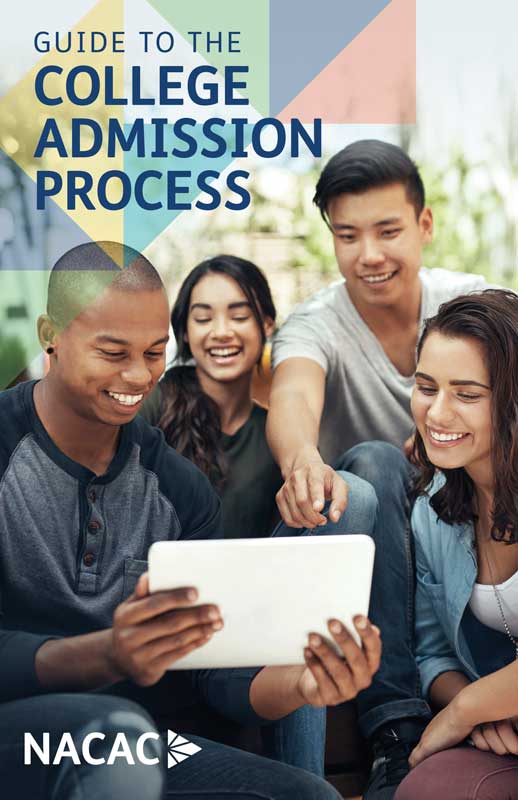
About NACAC
The National Association for College Admission Counseling (NACAC), founded in 1937, is an organization of more than 27,000 professionals from around the world dedicated to serving students as they make choices about pursuing postsecondary education.
Privacy Policy | Cookie Policy
Professional
For Counseling Professionals
For Admission Professionals
Student Tools
College Fairs
Nonprofit Status
The Internal Revenue Service recognizes the NATIONAL ASSOCIATION FOR COLLEGE ADMISSION COUNSELING INC as a 501(c)(3) exempt organization and public charity. NACAC’s tax identification number is EIN: 26-1909449
National Association for College Admission Counseling 1050 North Highland Street, Suite 400 Arlington, VA 22201
800-822-6285
© Copyright 2024 | All rights reserved | NACAC
The Complete Guide to the College Admissions Process
The recording will load in a moment., about this livestream.
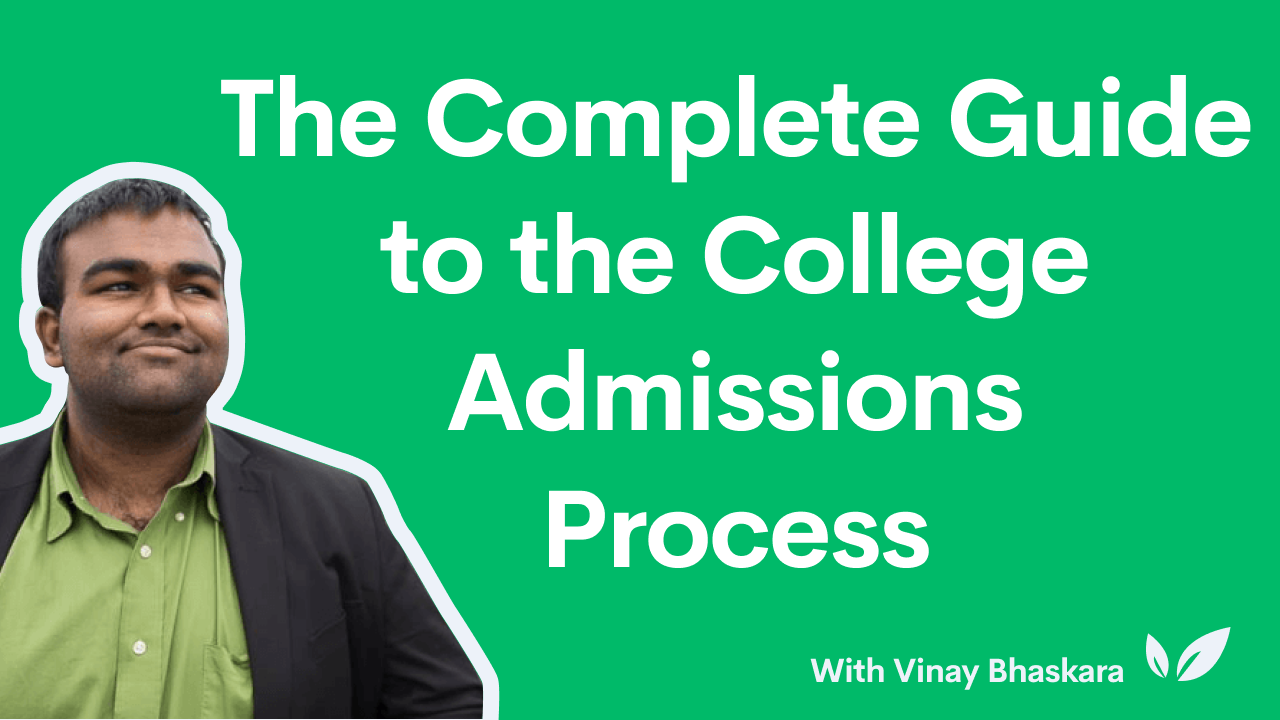
Learn how the college admissions process works, what colleges are looking for in an applicant, what the overall process and timeline look like, and how things have changed as a result of the coronavirus outbreak.
The college admissions process is more competitive and complicated than ever, and the last two years have seen a lot of disruptions. Our founder Vinay Bhaskara will provide a comprehensive overview of college admissions, walking through how the admissions process works, the types of things that colleges want to see in a successful application, and the overall process and timeline that should be followed.
After the presentation, there will be a Q&A where Vinay will address any and all questions about college admissions and the application process.
Vinay Bhaskara
Other recordings by vinay bhaskara.

The Ultimate Guide to UC Essays

Parents Series: What parents need to know about college admissions in 2022

Elite Admissions Series: How to get into an Ivy League college

Tips for Getting into Harvard from a Harvard Graduate
Popular recent recordings

Make the Most of Your Summer Break with the NSLC!

Making the Most of your Summer with Matriculate
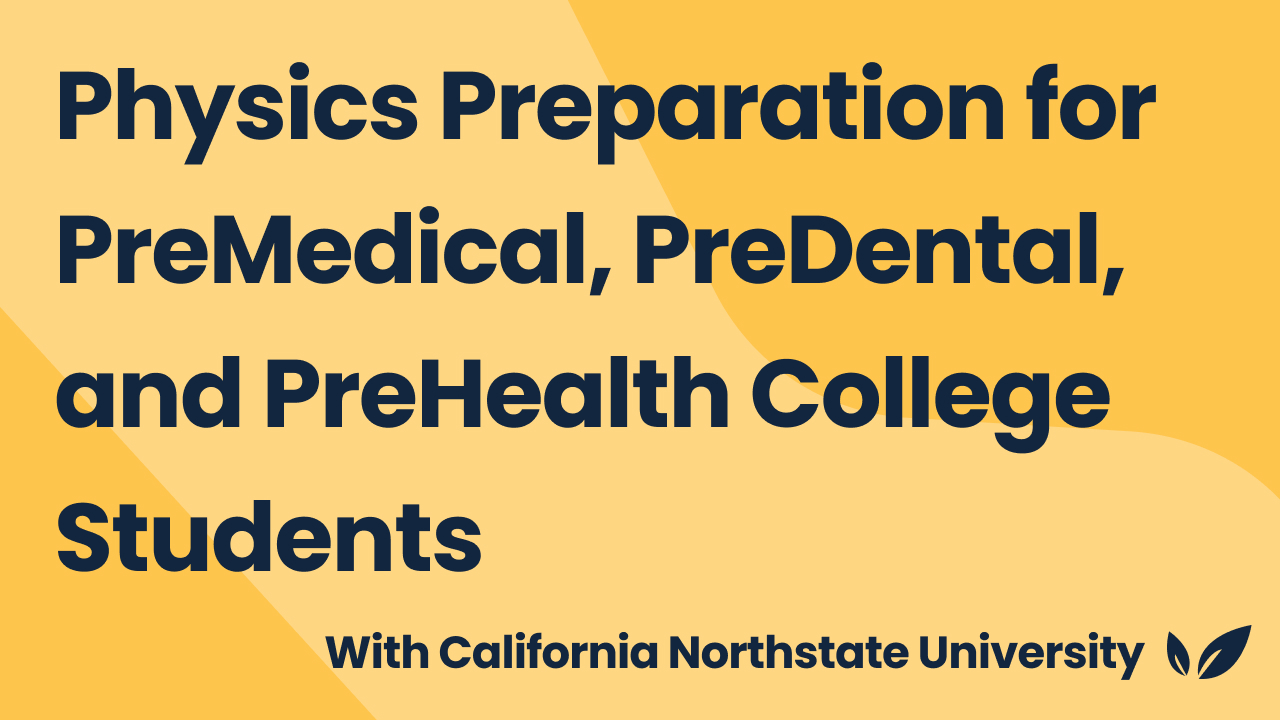
Physics Preparation for PreMedical, PreDental, and PreHealth College Students

I transferred to Harvard and how you can too
UNIVERSITY OF SOUTH FLORIDA
Admit-a-bull // official admissions blog, the college application process | a parent guide.
By Haley DeLeon | Last Updated: Aug 17, 2022

The college application process is an exciting and stressful time in your child’s life and for you as a parent. After all, you’ve offered your support throughout the educational journey up until this point, and you want to ensure your child makes the most of the experience and ultimately choose the right college.
Ready to discover your role in the college application process and where can you help the most? Here’s what you need to know as your child begins applying to colleges.
Common Questions From College Parents Answered
Starting the application process with a teen will feel overwhelming for most college parents. Here are a few basics so you can know how to get started.
What’s In a College Application?
A college application typically includes an online or paper application form along with additional items, such as your child’s high school transcript, entrance exam scores, a personal essay, and letters of recommendation.
When Should My Child Start Working on College Applications?
While students can start preparing for college during their junior year of high school , they typically start on the applications the summer before or fall of their senior year. The summer is a great time to start checking application deadlines, researching colleges, and creating a college list. College application deadlines usually range from January 1 to February 1, except for colleges with rolling admission deadlines like USF. Some colleges may also offer the opportunity to apply early, before the usual deadline, and get a decision sooner.
In addition, some colleges may have priority or early admission deadlines for applications. Applying with these deadlines in mind can help students have the best shot at obtaining scholarships and admission. For example, USF priority application deadline for freshman students seeking Fall admissions is November 1st. The priority deadline ensures students will get their preferred campus and may be less competitive.
What Can My Child Do Over the Summer to Prepare for College?
There are several things your child can do over the summer to get ready for college:
- Create a college list : Start making a list of colleges they may be interested in applying to.
- Prepare for the SAT and ACT : Study for college entrance exams like the SAT and ACT by answering practice questions and taking practice exams.
- Take the SAT : The SAT is offered at the end of August in most cities, which allows your child to take it before they get too busy with their senior year. Some schools allow students to superscore , which means greater chances for gaining admission to their school of choice.
- Get ready for the FAFSA : You can help your teen get ready for the FAFSA by gathering all the materials you’ll need to complete it.
For more information, check out our senior year college checklist .
How Many Colleges Should My Child Apply To?
While the exact number depends on your child’s individual circumstances, a good rule of thumb is three reach colleges, two match colleges, and one safety school. You can read more about the difference between reach, match, and safety schools here .
Should We Wait Until We’ve Completed the FAFSA to Apply to Colleges?
You don’t have to wait to apply to college until you finish the FAFSA or other financial aid forms. The FAFSA opens on October 1, and you should complete the forms as early as possible in the fall of your child’s senior year. Your family should still complete the FAFSA even if your child isn’t sure where they want to apply to college.
How Can I Get a Copy of My Child’s High School Transcript?
Most colleges require an official high school transcript as a part of the application, and it must be sent directly from your child’s school. A high school transcript is a record of all the classes they have taken and the grades they received. Your child’s school counselor can help you get an unofficial transcript for your records and help you request an official transcript from your school.
How Can I Find Out What Colleges My Child Sent Their SAT or ACT Scores To?
To find out where your child has already sent their SAT scores, you can log in to their College Board account with their username and password to see the Student Score Reports page. Then, click “View Details” for the relevant SAT date and click “Score Sends” from the menu.
You can view where your child sent their ACT scores in their MyACT account .
Why Do College Applications Ask for Parents’ Information?
Because your student is often still a dependent, you as the parent are responsible for paying for their college education. Parent data determines the expected family contribution (EFC) in the FAFSA, which in turn determines how much need-based aid students can receive.
Dos and Don’ts for Parents in the College Application Process
Choosing where to attend college is a big decision. Parents can help their teens decide based on financial aid information, academic opportunities, student life and resources, and other factors.
The following tips can help you strike the right balance in supporting your teen throughout the college application process.
Help Them Choose the Right School
While you don’t want to pressure students into choosing a particular school, they will still need your help in making this big commitment. You can help guide your teen by asking questions at the beginning of the application process to help inform what they are looking for:
- What do you want out of college?
- What kind of environment do you want to study in?
- What student resources and activities are you looking for?
- Do you prefer a large or smaller campus?
- Do you want to stay local or attend an out-of-state school?
- What extracurriculars do you want to continue with?
These questions will get them thinking about what they want to major in, where they want to go to college, and what to look for when evaluating schools. Engaging in regular discussion will help when it comes to making their final decision because you will be able to remind them of their priorities. You also can remind them that there are a lot of good options – it’s a monumental decision, but not a life-or-death one.
Provide Emotional Support
The college admissions process can be stressful for students. Parents can help by supporting their children’s mental health when things get tough. Take the time to listen so your child can express their frustrations and anxieties without fear of judgment.
Help Them Choose a Major
If your child is unsure what they want to major in, you can help guide them by asking them some questions that will help spur ideas:
- Do you know what you want to study?
- What are your favorite classes in school now?
- Are you interested in any industries or jobs?
Taking a career test can also help them start to think about their likes and dislikes and which majors can lead to career paths that interest them.
After selecting a major or defining possible career interests, you and your child can better evaluate the academic opportunities at each college. This includes majors and minors offered, course selections, accessibility and engagement of faculty, undergraduate research opportunities, and study abroad programs.
Be Proactive in the Financial Aid Process
This is a big one. Helping your child assess the potential cost of a college education and how you will pay for it is imperative. You should take a moment to determine your family’s annual income and expenses and familiarize yourself with all the costs of attendance (tuition, housing, meals, mandatory fees, etc.). The Office of Federal Student Aid has a list of resources to help you save for college, learn about financial aid, and understand the application process.
Then, have an honest discussion with your child about your financial parameters to clearly explain what you will be able to provide and what will need to be obtained through financial aid and scholarships. This includes a frank discussion on student loan debt and its implications. You and your child can sit down and compare financial aid offers to make an informed decision about where you can get the best deal. While award letters often show the cost for one year of enrollment, it’s critical to consider the total four-year cost for each school to make the best decision.
Help With the Timeline
While you don’t want to nag, you can help your child by creating a general schedule of when to attend college fairs, visit campuses, finish applications, and complete other steps in the process. Do your homework, but also remember while you can nudge your child along and offer support them, you can’t do everything for them.
Support Their Independence
College is generally the first foray into independence for teens, and their application process should reflect that. You can foster independent thinking and behavior by letting them be in the driver’s seat throughout the process. For example, when the decision letter comes in the mail, save it for your child to open no matter how curious you are to see its contents.
Visit Colleges Together
The campus visit is an integral part of the college application process and an area where you can help your teen. Make the most of the campus visit by taking detailed notes and asking open-ended questions.
Don’t Be Overbearing
Sometimes parents can get overly involved in the college admissions process, from pushing their child to apply to certain schools to steering them towards specific majors against their will. For example, instead of pushing your student into too many extracurricular activities, encourage them to pursue their interests. Putting too much pressure on your child will simply add to the stress and create more friction in the process.
Don’t Pressure Them to Choose a Certain School
Maybe you’re really proud of your alma mater. Maybe you want your child to attend a highly ranked institution. Maybe you always wanted to attend a school across the country and have a “typical” college experience. None of these personal desires should be projected onto your child. Instead, offer assistance and support and keep your personal feelings out of the final decision.
Don’t Compare Your Child to Others
While it’s easy to hold up your child’s acceptances and rejections to your friend’s kids’ application success, this is important to avoid . It’s not fair to compare individuals who have so many different interests, talents, and family circumstances.

Don’t Do the Work for Them
You should also make sure your teen takes responsibility for their college application process instead of doing it yourself. From writing application essays to keeping track of deadlines, your child needs to be able to take on the bulk of the duties. Think of this as a way of preparing for the independence of college.
The Parents’ Role in the College Application Process
Overall, you should make sure you are supportive and open-minded regarding the college application process. You are there to help guide your teen into making the right decision and becoming an independent adult.
For more tips on the college application process, subscribe to our blog to get regular advice in your inbox. You can also reach out to the Office of Admissions with any specific application questions.

About Haley DeLeon
Haley DeLeon is a content developer with extensive experience in the higher education sector. She is passionate about creating content that helps students and their families throughout the admissions journey.
Previous Post

Is it Better to Apply as Undecided or With a Major?

Helping Underserved Students Overcome Fear of College Cost

Written by Mark • August 29, 2023 • 4:44 am • Admissions • Views: 14
Navigating the College Admissions Application Process: A Step-by-Step Guide

As a high school student, the thought of applying to college can be daunting. The college admissions application process can be overwhelming, confusing, and stressful. It is crucial to have a step-by-step guide to help you navigate through the process successfully. In this article, we will provide you with a comprehensive guide on how to apply to college, including understanding college admission requirements , crafting an outstanding college application essay , submitting your college admissions application , and more.
- 0.1 Key Takeaways
- 1 Understanding College Admission Requirements
- 2.1 Creating a College Application Checklist: Sample Table
- 3.1 1. Brainstorm
- 3.2 2. Outline
- 3.3 3. Be Specific
- 3.4 4. Show, Don’t Tell
- 3.5 5. Proofread and Revise
- 4 Navigating College Application Deadlines
- 5.1 Factors to Consider when Shortlisting Colleges
- 5.2 Researching Colleges
- 5.3 Shortlisting Colleges
- 6 Requesting Letters of Recommendation
- 7.1 Free Application for Federal Student Aid (FAFSA)
- 7.2 External Scholarship Opportunities
- 8 Submitting Your College Admissions Application
- 9 Following Up on Your College Applications
- 10 College Application Tips and Best Practices
- 11 Conclusion
- 12.1 Q: What documents are commonly required when applying to college?
- 12.2 Q: How do I create a college application checklist?
- 12.3 Q: How can I write an outstanding college application essay?
- 12.4 Q: Why is it important to keep track of college application deadlines?
- 12.5 Q: How do I research and shortlist colleges?
- 12.6 Q: How should I approach requesting letters of recommendation?
- 12.7 Q: What financial aid and scholarship options are available?
- 12.8 Q: How do I submit my college admissions application?
- 12.9 Q: Why is it important to follow up on college applications?
- 12.10 Q: What are some tips for a successful college application?
Key Takeaways
- Applying to college can be overwhelming, confusing, and stressful.
- A step-by-step guide is essential to navigate through the college admissions application process successfully.
- This article provides a comprehensive guide that includes understanding college admission requirements , creating a college application checklist , crafting an outstanding college application essay , navigating college application deadlines , researching and shortlisting colleges, requesting letters of recommendation, understanding financial aid and scholarships, submitting your college admissions application, following up on your college applications, and college application tips and best practices.
Understanding College Admission Requirements
When it comes to applying to college, it’s essential to understand the admission requirements beforehand. College admission requirements can vary from school to school, but many of them share common elements.
While these admission requirements are common, be sure to double-check the specific requirements for each college you plan to apply to. It’s essential to stay organized throughout the application process, keeping track of deadlines and ensuring all requirements are met.
Creating a College Application Checklist
One of the most crucial steps in the college application process is creating a comprehensive checklist to ensure you have everything you need to submit your applications on time. Here are some steps to help you create your own college application checklist :
- Research application requirements: Begin by researching the application requirements for each of the colleges you plan to apply to. Take note of required documents, such as transcripts, test scores, and letters of recommendation, as well as any additional materials, such as essays or portfolios.
- Record deadlines: Once you have a clear understanding of the requirements for each college, record all application deadlines on your calendar or in a planner. Make note of both the regular decision deadline and any early decision or early action deadlines.
After recording all application deadlines, create a timeline for completing each requirement. This helps break down the application process into manageable tasks and ensures that you have enough time to complete everything before the deadline.
- Prepare application materials: Begin gathering all necessary application materials as early as possible. This includes academic transcripts, test scores, and any other required documents. Make copies of everything and keep them organized in a folder or binder.
- Write a to-do list: Create a to-do list for each college application, breaking down the requirements and deadlines into smaller tasks. This will help you stay on track and ensure that you don’t miss any important deadlines.
As you complete each task on your to-do list, check it off and record the date in your planner. This will help you track your progress and stay motivated throughout the application process.
Creating a College Application Checklist: Sample Table
Here is a sample table that you can use to create your own college application checklist :
Remember, creating a college application checklist can help reduce stress and ensure that you submit all of your applications on time. Take the time to research application requirements, record deadlines, and prepare your application materials in advance. With a little organization and planning, you’ll be on your way to a successful college application process .
Crafting an Outstanding College Application Essay
The college application essay is a crucial part of the admissions process, as it provides a unique opportunity for students to showcase their personality, accomplishments, and aspirations. Here are some tips to help you write an outstanding college application essay:
1. Brainstorm
Take the time to reflect on your experiences, goals, and personality. Jot down any ideas that come to mind, even if they seem insignificant. Think about what sets you apart from other applicants.
Create an outline that highlights the key points you want to convey in your essay. It helps to have a clear structure to follow, such as an introduction, body paragraphs, and conclusion.
3. Be Specific
Avoid vague statements and be specific with your experiences and achievements. Use examples to demonstrate how you have overcome challenges and developed as a person.
4. Show, Don’t Tell
Instead of telling the reader what you are like, show them through descriptive language and storytelling. Use anecdotes and imagery to bring your essay to life.
5. Proofread and Revise
Proofread your essay for errors in grammar, spelling, and punctuation. Have a friend or family member read it over and offer feedback. Revise your essay as many times as necessary to ensure it is the best it can be.
Remember, the college application essay is an opportunity to showcase your unique qualities and potential to the admissions committee. Follow these tips to craft an outstanding essay that will help you stand out from the crowd.
Navigating College Application Deadlines
Applying to college means keeping track of multiple deadlines. Missing a deadline can mean missing an entire application cycle and delaying enrollment by a year, so organization and planning are crucial.
The key to staying on top of application deadlines is to create a schedule well in advance. Start by identifying the deadlines for each college you plan to apply to and organizing them by date. Use a planner or digital calendar to mark these deadlines and set reminders several weeks in advance.
It’s important to give yourself enough time to complete each application thoroughly, so plan accordingly. Avoid waiting until the last minute to work on applications. Procrastination can lead to careless errors and missing important details.
If you have questions about deadlines or need additional time to complete an application, don’t hesitate to reach out to the admission office of the college you’re interested in. They may be able to provide clarification or grant an extension in certain circumstances.
Researching and Shortlisting Colleges
One of the most critical steps in the college admissions application process is researching and shortlisting colleges. This task can be daunting, but with the right approach, it can be an enjoyable and informative experience.
Factors to Consider when Shortlisting Colleges
When it comes to selecting colleges, there are several factors to consider:
- Academic Programs: Look for colleges that offer programs in your field of study, and evaluate the program’s curriculum, faculty, and resources.
- Location: Consider the geographic location of the colleges and assess the availability of transportation, entertainment, and cultural opportunities.
- Campus Culture: Determine the campus culture and community atmosphere of each college and identify how well it aligns with your interests and values.
- Financial Considerations: Look at the costs of attendance, including tuition, room and board, and other expenses, and evaluate the availability of financial aid and scholarships.
Researching Colleges
There are several ways to research colleges, including:
- Attending college fairs and information sessions.
- Visiting college campuses and taking campus tours.
- Speaking with current college students and alumni.
- Exploring college websites and social media platforms.
- Reading college review websites and guides.
Shortlisting Colleges
Once you have a list of colleges you are interested in, evaluate each one by:
- Reviewing admission requirements and deadlines.
- Comparing academic programs, campus culture, and location.
- Researching financial aid and scholarship opportunities.
- Assessing the admissions selectivity and student retention rates.
By thoroughly researching and shortlisting colleges, you can identify the best-fit institutions and increase your chances of being accepted.
Requesting Letters of Recommendation
Letters of recommendation are an essential part of the college admissions application process. They provide insights into the student’s character, achievements, and potential. Different colleges have specific requirements for the number of letters needed, who they should come from, and how they should be submitted. Therefore, it is vital to research each school’s specific requirements and ensure the letters are submitted by the designated deadline.
When requesting letters of recommendation, it is crucial to approach good, trustworthy sources such as teachers, coaches, or employers. These sources should have a good understanding of the student’s academic performance, personality, and character. Once you have identified potential sources, it is essential to schedule a meeting to discuss your request. During the meeting:
- Explain why you need the letter of recommendation and what you hope it will convey to the admissions office
- Provide a copy of your resume and transcript
- Give them adequate time by allowing several weeks to write the letter
- Thank them for taking the time to write a letter on your behalf
It is crucial to follow up with the letter writers a few weeks before the deadline to ensure the letters have been submitted. It is also essential to provide any necessary information such as specific recommendation forms or instructions for submitting the letter.
Remember to keep the letter writers aware of the application deadlines and ensure the letters are submitted on time to avoid jeopardizing your chances of admission.
Understanding Financial Aid and Scholarships
Once you have a list of colleges in mind, the next step is to explore financial aid and scholarship options. Paying for college can be a daunting task, but there are several options available to students to ease the burden. Here are some things you need to know when it comes to financial aid and scholarships:
Free Application for Federal Student Aid (FAFSA)
The Free Application for Federal Student Aid (FAFSA) is the most important financial aid form you will fill out. This form determines your eligibility for federal aid, such as grants, loans, and work-study programs. It is highly recommended that you complete the FAFSA as soon as possible after it becomes available on October 1. Be sure to check with your college of choice to confirm their FAFSA deadline.
External Scholarship Opportunities
In addition to federal aid, there are many external scholarship opportunities available to students. It is important to research and apply for as many scholarships as possible as they do not have to be paid back. Start by checking with your high school guidance counselor for local scholarship opportunities. You can also use online scholarship search engines like Scholarships.com or Fastweb.com to find scholarships that fit your interests, academic background, and demographic.
Understanding the various financial aid and scholarship options available to you is crucial to making informed decisions about the affordability of your college education. Be sure to explore all avenues and take advantage of the resources available to you.
Submitting Your College Admissions Application
After completing all the necessary application materials, it’s crucial to review and finalize everything before submitting your college admissions application. Here are some tips to ensure a successful submission:
- Proofread everything: Check your application, essays, and any additional materials for any errors or typos. Even small mistakes can negatively impact your application.
- Use the correct submission platform: Make sure you’re aware of the submission requirements and deadlines for each college and use the correct submission platform, whether it’s the Common Application, Coalition Application, or the college’s individual application.
- Double-check your application fee: Make sure you’ve paid the application fee for each college you’re applying to, if required. If you’re applying for a fee waiver, make sure all necessary documentation is submitted.
- Submit all materials on time: Check the application deadlines for each college and make sure all materials are submitted before the deadline.
Once your application is submitted, you should receive confirmation from the college that it has been received. Make sure to keep track of your application status and follow up with the college if necessary. By following these tips, you can ensure a successful and stress-free submission of your college admissions application.
Following Up on Your College Applications
After submitting your college admissions applications, it’s essential to stay on top of the college application process and timeline. Follow these steps to ensure a smooth application process:
- Check your application status regularly: Most colleges allow students to check their application status online. Make sure to check your status regularly to ensure that you have submitted all required materials and that your application is complete.
- Send additional materials if necessary: If a college requests additional information or materials, make sure to submit them promptly. This could include updated transcripts, test scores, or other supporting documents.
- Understand the college application timeline: Each college has its own application timeline, which includes application deadlines, decision release dates, and acceptance reply dates. Make sure to keep track of these dates and plan accordingly.
- Contact the admissions office if you have questions: If you have questions about the application process or your application status, don’t hesitate to contact the admissions office. They are there to help you through the process.
Following up on your college applications can help ensure that you are considered for admission and that you receive timely notification of your acceptance or rejection.
College Application Tips and Best Practices
Looking to maximize your chances of success in the college admissions application process? Here are some tips and best practices to keep in mind:
- Start early: Don’t wait until the last minute to begin preparing your college applications. Give yourself plenty of time to research schools, gather application materials, and craft thoughtful essays.
- Stay organized: Keep track of application deadlines, required materials, and submission platforms to ensure you don’t miss any crucial deadlines. Consider using a spreadsheet or other organization tool to stay on top of everything.
- Showcase your strengths: Use your application materials to highlight your unique strengths, accomplishments, and experiences. This could be in the form of an impressive essay, a standout extracurricular activity, or a strong letter of recommendation.
- Seek guidance: Don’t be afraid to reach out to school counselors, teachers, or other mentors for guidance and support throughout the application process. They can provide valuable insights and feedback that could make all the difference.
- Visit campuses: If possible, try to visit the campuses of the schools you’re interested in to get a better sense of the culture, environment, and academic programs. This can help you make more informed decisions and craft better applications.
- Proofread: Take the time to carefully proofread all of your application materials to ensure they’re error-free and polished. Consider having a friend or family member read over them as well to catch any mistakes you might have missed.
By following these tips and best practices, you’ll be well on your way to creating a compelling, well-crafted college admissions application that showcases your strengths, achievements, and aspirations.
The college admissions application process can be daunting, but following a step-by-step guide can make it manageable. Understanding college admission requirements, creating a college application checklist, crafting an outstanding college application essay, and navigating college application deadlines are crucial steps in the process. Researching and shortlisting colleges, requesting letters of recommendation, understanding financial aid and scholarships, submitting your college admissions application, and following up on your applications are equally essential for success.
Remember to seek guidance from school counselors, visit campuses, and stay organized throughout the process to maximize your chances of acceptance. With a thorough understanding of the college application process and a strategic approach to each step, you can achieve your dreams of attending the college of your choice. Good luck!
Q: What documents are commonly required when applying to college?
A: When applying to college, common documents required include high school transcripts, standardized test scores (such as the SAT or ACT), letters of recommendation, and a college application essay.
Q: How do I create a college application checklist?
A: To create a college application checklist, start by researching the specific requirements for each college you’re applying to. Make a list of all the necessary documents, forms, and deadlines, and organize them in a clear and comprehensive manner.
Q: How can I write an outstanding college application essay?
A: To write an outstanding college application essay, start by brainstorming ideas and reflecting on your experiences and goals. Craft a compelling narrative that showcases your unique personality, accomplishments, and aspirations. Be authentic, concise, and proofread your essay for clarity and grammar.
Q: Why is it important to keep track of college application deadlines?
A: Keeping track of college application deadlines is crucial to ensure you don’t miss any opportunities. Missing deadlines can result in your application being disregarded or not receiving full consideration for scholarships or financial aid.
Q: How do I research and shortlist colleges?
A: Researching and shortlisting colleges involve considering factors such as academic programs, location, campus culture, and financial considerations. Utilize college search engines, attend college fairs, visit campuses, and consult with school counselors to gather relevant information and make informed decisions.
Q: How should I approach requesting letters of recommendation?
A: When requesting letters of recommendation, choose individuals who can speak to your academic abilities, character, or work ethic. Ask politely, providing them with relevant information about your achievements and goals. Give them ample time to write the letter and thank them afterward.
Q: What financial aid and scholarship options are available?
A: Financial aid options include federal assistance through the Free Application for Federal Student Aid (FAFSA), as well as scholarships offered by colleges, organizations, or private institutions. Research external scholarship opportunities and meet with financial aid advisors to explore available options.
Q: How do I submit my college admissions application?
A: To submit your college admissions application, finalize all required materials, proofread them for any errors, and submit them through the designated application platform or by mail. Familiarize yourself with the specific submission requirements of each college.
Q: Why is it important to follow up on college applications?
A: Following up on college applications allows you to track the status of your application, address any additional requirements or inquiries, and ensure that your application is complete. It also demonstrates your continued interest and engagement with the college.
Q: What are some tips for a successful college application?
A: Seek guidance from school counselors or college admissions professionals, visit campuses to get a sense of the environment, and stay organized throughout the application process. Keep track of deadlines, maintain open communication, and submit well-prepared and authentic application materials.

Leave a Reply Cancel reply
Your email address will not be published. Required fields are marked *
Save my name, email, and website in this browser for the next time I comment.
- Admissions 13
- Best Colleges 20
- Staff's Picks 1
Featured Posts

How to Prepare for College Entrance Exams: A Comprehensive Guide

Five Tips for a Standout Common Application Essay

How to Prepare for a Successful College Interview

Getting a Feel for Campus Life: The Importance of College Admissions Visits

How Early Action Can Give You an Edge in College Admissions

Demystifying the Admissions Committee: A Guide to College Admissions

The Benefits of Early Decision for College Admissions

- Best Colleges
- Staff's Picks
- Plan for College and Career
- Take the ACT
- School and District Assessment
- Career-Ready Solutions
- Students & Parents
- Open Search Form
- College and Career Readiness
- Succeed in High School
- Testing Advice for the ACT
- High School Resources
- What to Do After High School
- Prepare for College
- Applying to College
- Choosing a College
- Paying for College
- College Life
- Career Planning
- Starting Your Career
- Recursos para estudiantes y padres
- Consejos de prueba para el ACT
- Planificación universitaria y profesional
- Aplicar a la universidad
- Vida de la escuela secundaria
- Pagar la universidad
- Vida universitaria
Other ACT Services and Products
College Application Process Guide
Start Planning Now
Quick Links: When to Apply | Application Deadlines | Requirements | How to Apply
Applying for colleges - how to begin.
The college application process can seem overwhelming, but with some background information on how to begin applying for college and staying organized, it doesn’t have to be.
Start by focusing on the big college application to-do items. Outline everything you need to submit when applying for colleges. Look at college application deadlines, then work backward to give yourself a timeline of when you should work on each section to avoid feeling rushed.
When should you apply for college?
The college application process isn’t something you can get done in a matter of weeks, so give yourself plenty of time to work on your college applications. Most students start the college application process towards the end of their junior year by collecting letters of recommendation, reviewing college essay prompts, and getting to know their priorities when selecting schools to apply to.
Use your college list to narrow down which school applications to research.
Prepare early for application season by learning about the four steps below:
- Earn a Competitive ACT Test Score
- Create a College List
- Visit Campuses
- Ask for a Letter of Recommendation
Earn a Competitive ACT Test Score
Whether you’re planning to meet early or regular decision deadlines , you want to know what your ACT score could be by then.
One point on your ACT test could make the difference in acceptance into college and/or thousands of dollars in scholarships.
If you think you might test more than once, take it in the early spring of your junior year to see where you are and familiarize yourself with the testing environment. Then, if you want to improve your score, consider testing again in the spring, summer, or fall of your senior year.
Every student who takes the ACT more than once, automatically earns a Superscore . Your superscore is the average of your best scores from each subject from multiple test attempts.
Create a College List
There are thousands of degree-granting colleges and universities in the United States. How do you sort through all these options and select the few institutions you want to learn more about? The type of colleges you consider will depend on your goals and expectations. Narrow down your choices by considering:
- Major programs
- Location
- Cost of attendance
- Extracurricular activities
- Admission difficulty
Keep narrowing your college list until you have 8-15 colleges you want to spend time researching. Review the important college list factors to consider.
Visit College Campuses
Once you have a narrowed list of colleges, visit college campuses and experience firsthand what it’s like to be a student. A school may look great on paper or online, but you might be surprised when you step foot on campus for the first time. A successful college visit can give you the confidence you need to make a final decision on your future alma mater. Learn more tips on how to master a campus tour .
Ask for a Letter of Recommendation
Letters of recommendation are an essential part of the college application process. Admissions officers use this information to learn more about you from a new perspective. The letter should give them confidence in your ability to contribute to their school, showcase what makes you unique, and prove you have the drive to accomplish things inside and outside the classroom. Consider these tips when requesting letters of recommendation .
What are the college application deadlines?
There are several college application deadlines to be aware of, including early decision, early action, regular decision, and rolling admissions. The deadline you choose to meet will depend on your goals and could impact the number of applicants you’re reviewed against. Find out which application deadline is best for you.
What are the college application requirements?
You will find that most college applications require the same types of documents. The ones they request will help them compare applicants and select the ones that appear to be the best fit for their school.
College application requirements include:
Application Form
This is likely where admission offices will gather your basic personal information, extracurriculars, awards, leadership opportunities, work experience, and more.
High School Transcript
Your high school transcript will outline the entire list of courses you took, final grades received, academic accomplishments, and both your weighted and unweighted GPAs.
Letters of Recommendation
Collect letters from respected individuals who know you well, including counselors, teachers, employers, or coaches. Let them showcase who you are to the admissions officers based on their personal and frequent interactions with you.
Essay and Personal Statements
Your college essay is the place to tell your story beyond your other application pieces. Some applications have additional questions or spaces dedicated to personal statements. Use these to show them what is most important to you and what you have to offer.
Standardized Test Scores
Even with more schools going test-optional, having test scores to submit may help you stand out and help earn you some scholarships. Consider taking the ACT your junior or senior year before it's too late, even if you ultimately choose not submit your scores.
Application Fee
Most colleges require an application fee, but there’s good news! Students who test with an ACT fee waiver may also request a Waiver or Deferral of College Admission Applications Fee. To have a college application fee waived, you must submit your fee waiver directly to the college to which you are applying (not to ACT).
On Demand Webinar: College Admissions from A to Z: Ace Your Application Process (And Stay Stress Free)
Navigating college admissions can be overwhelming and full of questions, but we’ve got answers! Check out this free on-demand webinar as expert college application counselors from Collegewise answer all your questions from making the most of your high school experience, researching colleges and ultimately crafting your best application.
How to start applying for colleges?
If you’re wondering how to apply to college, you’re not alone! It may seem overwhelming, but with some guidance, you’ll be well on your way to getting that acceptance letter.
Follow these steps when applying to college:
1. Research Colleges
Towards the end of your junior year, review the list of colleges you're considering. Plan to apply to roughly 5-8 schools, including your dream school and one or two safe schools. Research and keep detailed notes about each of those colleges’ application requirements, deadlines, and scholarships. Is there anything unique this school requires as part of the application process?
TIP: Keep your notes organized in an Excel doc ( Download our college comparison tracker excel workbook ) or similar so you can easily compare the colleges
2. Gather Your Documents
After looking at the requirements for each school, create a to-do list. Add deadlines and due dates to a calendar so you aren't scrambling to get everything done in time.
TIP: If you are planning to meet early college application deadlines, you'll need all your documents collected before the start of winter break since most educators and schools are unavailable then.
3. Get Financial Support
Now that you are getting ready to apply it’s time to review your financial options to help pay for school. Talk with your parents about any financial support they plan to offer towards college costs. In addition to family support, there are other financial plans you can make. Students should submit the Free Application for Federal Student Aid (FAFSA) . After being accepted, you'll receive a personalized financial aid package will outline any federal grants or scholarships you qualify for, federal work-study, and student loans. Pursue scholarships that may be awarded based on need, merit, or athletic pursuits.
4. Fill Out and Review Your College Application
Go to the college's website to start your application. Often they open in August for the following academic school year. You may also consider submitting your application through the Common App, which allows you to apply to multiple colleges with the same application. Ask one or two trusted individuals to review all your materials to ensure you aren’t missing anything or have spelling or grammar errors.
Get More Insights with Our College Application Guide
What are you waiting for? Get started on your college applications! Don’t be afraid to ask questions along the way and remember to stay as organized as possible so that you can meet all your deadlines. To get more college application support, download the college application guide ebook.
Get the FREE eBook!
More resources for college applications.
A list of resources to help you navigate the exciting journey of applying to college.
This action will open a new window. Do you want to proceed?
Welcome to ACT
If you are accessing this site from outside the United States, Puerto Rico, or U.S. Territories, please proceed to the non-U.S. version of our website.
- Skip to main content
- Skip to primary sidebar
- Skip to footer
- admissions »
College Application Process – Step-by-Step Guide
posted on March 27, 2023
The college application process is a critical juncture in the lives of high school seniors as they prepare to embark on the next chapter of their academic journey. This significant undertaking involves numerous steps, from researching potential schools to submitting applications and completing interviews.
This blog will overview the college application process, including the essential steps in applying to colleges and universities. We will discuss key elements such as researching schools, selecting and preparing for standardized tests, crafting effective personal essays, and tracking applications.
Whether you are a high school senior preparing to embark on the college application process or a parent seeking guidance for your child, this blog will provide valuable insights into the college application process and help you feel more confident and prepared for this critical step in your academic journey.
What is the college application process?
Wondering how to start applying for colleges?
The college application process is a crucial journey for high school seniors. Think of it as a roadmap to your future academic and career opportunities. A successful application can open doors to top-tier institutions, while a poorly executed one can limit your options. Let’s dive into how you can do it right:
Timeline of the college application process
The college application process is a multi-step journey that begins in junior year and culminates in senior year of high school. Here is a rundown of what you should do each semester:
Junior Year- Fall Semester
- September-October: Start researching colleges and universities you may be interested in attending.
- October-November: Take the PSAT exam, which can qualify you for National Merit Scholarships.
- November-December: Consider taking SAT Subject Tests if required by the colleges you’re interested in.
- December: Finalize a list of colleges and universities to which you want to apply to .
Junior Year – Spring Semester
- January: Register for the SAT and/or ACT.
- February-April: Start visiting colleges and universities and attending informational sessions.
- April-May: Take the SAT and/or ACT if you haven’t done so already.
- May-June: Start working on your college application essays.
Junior Year – Summer
- June-August: Consider attending a summer program or job to further explore your interests and enhance your application.
Senior Year- Fall Semester
- September: Finalize your college list and start filling out applications.
- October-November: Submit early action/early decision applications, if applicable.
- November-December: Submit regular decision applications.
- December: Submit any required financial aid forms.
Senior Year- Winter Break
December-January: Check application statuses and work on any additional materials, if needed.
Senior Year- Spring Semester
March-April: Receive admission for college decisions from colleges and universities.
May: Decide which college to attend and submit your enrollment deposit by the deadline.
June: Send your final high school transcripts to your college or university.
Common application vs. individual applications
A common application is a standardized application form many colleges and universities use. Students can fill out one application and submit it to multiple schools.
On the other hand, an individual application is a unique application form used by a specific college or university. It must be filled out separately for each school a student wishes to apply to.
Common applications help save time, money, and energy and allow students to apply to numerous schools simultaneously.
Additionally, since the common application is designed to accommodate a variety of colleges and universities, admissions officers can easily compare and evaluate applicants. However, since all students use the same form, it can be harder for students to stand out than students submitting individual applications.
On the other hand, individual applications allow students to showcase their unique talents and abilities more easily than with the common application.
Additionally, since different schools require different types of applications, students have more flexibility when crafting their individual applications. However, completing individual applications takes more time, money, and energy than common applications.
5 Steps in the College Application Process
Here is a rundown of how to apply to colleges:
Step 1: Research colleges
An essential step in college application guidelines is researching colleges; start by listing your priorities. These include size, location, cost, majors, extracurricular activities, and academic reputation.
Next, begin researching the schools on your list. Visit their websites, read about their offerings, look for student reviews, and take a virtual tour if available. Think about each school’s size, location, cost, and whether it is public or private . Consider any special programs, clubs and activities, and class sizes. Evaluate the school’s academic reputation and the quality of its professors.
You should also consider the admissions process. Ensure you understand the admissions criteria, such as the required testing and application documents. Finally, narrow down your list.
Once you have compiled all of your research, carefully weigh the pros and cons of each school and choose the one that best meets your needs and goals.
Step 2: Standardized testing
Common tests such as the SAT and ACT are used to assess students’ knowledge, skills, and aptitude for college-level courses.
The SAT is a standardized test used to measure a student’s knowledge in areas such as reading, writing, and math. The SAT is administered seven times yearly and is available in paper and digital formats. The ACT is another standardized test used to assess students in areas of English, math, reading, and science. The ACT is available in paper and digital formats and is administered five times yearly.
To prepare for ACT and SAT, students should be sure to practice and review the material they will be tested on. It is also important to stay organized and give yourself plenty of time to study. Additionally, students should make sure to register for the test far in advance, as spots can fill up quickly.
Step 3: Requesting transcripts and letters of recommendation
Requesting transcripts and letters of recommendation can help with the college application process.
First, list all the people you would like to request transcripts and letters of recommendation. Once you have your list, contact each person and ask if they would be willing to provide transcripts and/or a letter of recommendation.
Ensure to provide the person with all the necessary information, such as deadlines, the purpose of the transcript/letter, where it should be sent, and any additional details that may be needed.
After you have requested the transcripts and/or letters of recommendation, you may want to follow up with the person. A polite reminder can go a long way in a timely process.
Finally, make sure to thank the person for their time and effort in providing you with the necessary information. A small token of appreciation, such as a gift card or a note of thanks, can go a long way in expressing your gratitude.
Step 4: Writing essays and personal statements
Brainstorming, drafting, and editing essays and personal statements can be daunting. Here are a few tips to help you get started:
Brainstorm : Take the time to think about your topic and what points you want to make. Spend a few minutes free writing or writing down key points to help get your ideas flowing.
Draft : Once you know what you want to write about, start drafting your essay. Don’t worry about being perfect; just write your thoughts down.
Edit : After you have finished the draft of your essay, spend time editing and polishing. Read your essay aloud, have others read it, and ensure it accurately conveys your message.
Finalize : Once you have reviewed and edited your essay, give it a final read-through. Make any necessary adjustments and ensure that your essay is error-free.
Step 5: Completing the application
Completing the college application process is a major step for any student, but it can be done successfully with the right preparation and attention to detail:
The first step is to gather all the required information and documents. This typically includes information about the student’s academic and extracurricular activities, test scores, and transcripts.
The next step is to complete the application form. This includes filling out personal information, such as an address, phone number, and other contact information. The student should also include information about their academic record and any extracurricular activities they have participated in.
Once the form is complete, the student should submit the application. The final step is to wait for a response from the college. The student should make sure to regularly check their email and/or the college’s website for any updates.
After Submitting the College Application
So how do college applications work once you’ve submitted them? Let’s look into it:
Application tracking and follow-up
The first step is to create a spreadsheet or list with all the applications you plan to submit. This should include the deadlines, contact information, and other relevant information. As you submit your applications, you can update the list with submission dates and a note of what documents you have sent.
You should also set up email reminders a few weeks before each application deadline . Reminders will help ensure that all documents are sent on time and that you don’t miss any opportunities. Additionally, it is important to follow up with each school to ensure they received all the documents you sent. You can follow up with a phone call or email.
Financial aid and scholarships
Students should know each program’s deadlines and eligibility requirements when applying for financial aid and scholarships. It is important to submit all applications and other required documents in a timely manner to ensure that you are considered for the aid or scholarship.
58% of families used scholarships in 2020 to assist with college costs. Also, about 1.7 million private scholarships are available, so you can benefit from them.
Decision-making and acceptance
It is important to take the time to consider your options and find the school that best fits your academic and personal goals.
First, research and compare the colleges that have accepted you. Explore the schools’ programs and offerings, tuition, and any scholarships or financial aid available. Consider the school’s location and whether the environment is conducive to your learning style.
Consider the atmosphere, the student body, the size of classes, and any other factors that will be important to you during college . Look into the school’s other resources, such as career services, networking opportunities, and internships.
Preparing for college
Here are some factors you should consider when preparing for college:
Most colleges offer on-campus dorms and off-campus apartments. Determine which option best suits your needs, considering cost and convenience. If you choose to stay in an off-campus apartment, make sure to research the local area and nearby amenities.
Consider meal plans’ cost and convenience and determine which is best for you. If you’re staying off-campus, research the local grocery stores and meal delivery services.
Academic Preparation
Before classes begin, ensure you have the necessary materials and supplies. Research your course schedule and syllabus to familiarize yourself with the course material and assignments. If you require additional help, use your college’s tutoring services. Additionally, create a study schedule and find a quiet place to study.
It is important to remember that the college application process is a long and complex journey. Proper planning and research make it possible to make the most of the process and maximize your chances of acceptance.
From creating a list of colleges to building an impressive resume and writing an effective essay , students should take the time to consider every step of the process carefully. The process doesn’t end once you have submitted the application, as you need to track your application and explore funding options.
Leave a Reply Cancel reply
Your email address will not be published. Required fields are marked *
Save my name, email, and website in this browser for the next time I comment.

Related Posts

What Is a Good GMAT Score? – All You Need to Know
What is a good GMAT score? We have all the answers for you! While a good GMAT score is subjective to the institution and program you are applying to, top-tier business schools consider a good GMAT score to be 720 points or above. In this article, we will walk you through what the GMAT is and how the scoring is carried out, what a good GMAT score is, how you can achieve a good GMAT score, and how your scores…

What is a good GRE score?
Admissions officers use GRE scores to evaluate whether you would be a good fit for their institution and be able to keep up academically in a competitive environment. If you are wondering what the GRE is, how scoring is done on the test, how you can be prepared to achieve a high GRE score, and why the GRE is essential, look no further. We have all the answers for you! What is the GRE, and How is it Scored? Overview…

What is a Good ACT Score?
The ACT, or American College Testing, is a standardized test that high school students in the United States take to assess their academic readiness for college. It covers four subject areas: English, math, reading, and science, and provides colleges with a standard measure of students' abilities. As students prepare for college, understanding what is a good ACT score is crucial. It is an important factor in the college admissions process, as it helps colleges evaluate applicants' potential for success in…

What is a good SAT score?
Are you planning your higher education journey? Then preparing for your SATs is a crucial step in your college application process because standardized test scores are an essential element that most colleges and universities require. It would help if you achieved a good SAT score because it opens up many opportunities for you. For example, you will be eligible to apply for higher-tier colleges and universities and have a higher chance of gaining a spot in your desired institution. If…
Degree Matchup provides an easy-to-use platform that allows you to search for colleges based on your needs and interests. With Degree Matchup, you can explore top schools nationwide and find the perfect fit for your future.
- Terms & Conditions
- Privacy Policy
Top Categories
- Comparisons
- Preparation
E-mail Newsletter

College Application Process: 10-Step Guide for Families
By Morgan Smith
October 15, 2022
The moment you’ve been waiting for is finally here: you’re applying to college. Now you may be wondering what the next steps are in the college application process.
There are many factors to consider: Where do you want to go? What do you want to study? Are your grades good enough to get into a good school? Will you be able to afford it if you do?
These and others are some of the questions you’re probably asking yourself at the beginning of this process—and getting the answers might prove unexpectedly difficult.
There are a lot of steps involved in applying to colleges and a lot of different information on how to approach it. Here are our ten steps for making the process as straightforward as possible.
10 Steps for Applying to College
Step 1: career & major exploration.
Deciding what you want to do with the rest of your life can seem like a nerve-wracking experience, but it needn’t be. Think back through high school so far: what got you the most excited? Maybe it was learning a new programming language or understanding a new math concept. Identify the things that you’re good at and imagine what kinds of careers to which you could apply these interests.
Think about where your priorities lie. Want to maximize your earning potential? Research the highest-paying majors and see if any stick out to you. Want to spend your career helping others? Maybe medicine or social work is right for you.
Also think about how rigorous the coursework in your selected major will be. Depending on the program, the time commitment required to do well academically can be a lot higher.
Still totally unsure of what you want to do? Meet with an academic advisor at your school to get an experienced opinion. Or take an aptitude test and review the results with a college counselor. Just remember: the decision you make now as a high school senior is not set in stone. College is a time for exploration. If you discover a new passion during your studies, you can always change your major.
Here are some quick tips for choosing a college major .
Step 2: College Planning
Colleges receive thousands of applications every year. The process of separating yourself from the pack begins early on in high school.
Colleges want to see that you’re challenging yourself as much as you can. Evaluate your schedule and sign up for as much as you think you’ll be able to handle.
They also want some indication of your interests outside of your school work. Clubs and extracurriculars are a great way to build soft skills.
In addition, keep in mind that test scores are another opportunity to stand out academically. It’s a good idea to give a college as many data points as possible that showcase your potential. Many colleges have adopted a test optional admissions policy, but the vast majority of schools will review your test scores if you submit them. If you’re not ranking at the top of your class because you attend a really competitive high school or because you have one bad grade weighing you down, remember that test scores are another way for you to shine. Many colleges also still tend to rely on test scores for scholarship consideration and honors college placement.
Lastly, be sure to take advantage of the test prep programs offered at KD College Prep. A great test score on the ACT®, SAT®, or PSAT tests could cast your application in a better light and expand your options.
Step 3: College Search
Once you’ve picked your major, the next step is to find colleges that offer this degree program and see which ones best meet your needs.
If you can, try to visit as many of the colleges on your list as possible. While the academic programs themselves are obviously important, you’re also making a decision about where you’re going to live for at least the next four years. You’ll want to be sure that the city you’re moving to is somewhere you’ll be able to enjoy living.
When building a college list, it’s important to fill it with a variety of options. Only applying to highly-competitive schools with low acceptance rates runs the risk of missing out on a potentially good fit. Build a balanced college list by separating college options into these three categories:
- Reach Schools – dream schools that you’d like to attend but may not get accepted into due to high competition or because your academic or personal profile is below what is typically accepted
- Match Schools – schools that tick a lot of the boxes but don’t quite qualify as a dream school
- Likely Schools – schools whose requirements you comfortably meet and you can picture yourself attending
Don’t wait until the last minute to build your list. Dedicate time to researching your college options. Attend college info sessions or fairs when possible, either in person or virtually. If you take the time to really learn about the schools on your college list early on in the process, you’ll feel more prepared and confident when applying.
Step 4: Choosing Deadlines
Early Action deadlines (EA) gives you an option to apply early. EA deadlines are great for students who have their applications prepared early, as it demonstrates interest to college admissions officers. EA deadlines start at the beginning of November and mean that you could potentially be celebrating an acceptance before the end of the calendar year. Some schools also offer EA II deadlines, which is another round of Early Action before regular deadlines hit. These decisions are non-binding, meaning that if a college accepts you through an EA deadline you don’t have to go there.
Single Choice or Restrictive Early Action is basically the same as Early Action, except that you can only apply to one school this way. This shows schools that they are your top choice. These decisions are also non-binding.
Early Decision deadlines allow students to apply early as well, but if the school accepts them then they have to go there. Early Decision deadlines are usually in November with acceptance decisions in December. You should only apply to Early Decision deadlines if you’re 100% sure that you want to go to that school.
Regular Decision is the most common type of college application deadline with due dates ranging from December to March and college decisions in late April. It’s non-binding. It’s the route that most people take with their applications, and an abundance of colleges only offer this choice.
Rolling Admissions means that there isn’t a hard deadline for applications. Colleges that use rolling admissions accept applications until all of their available spots are filled.
If you’re not sure of the specific application deadlines for the schools you’re applying to, remember to contact their admissions department for answers.
Step 5: Create a Resume
While good test scores will get your foot in the door, a resume is where you can begin to differentiate yourself from other applicants.
As mentioned earlier, taking as many challenging classes as possible in high school will provide deeper context for your GPA. Schools want to see that you’re not afraid of hard work and that you’ll take advantage of learning opportunities placed in front of you. While your academic performance will be detailed in your transcript, the resume allows you to call attention to a stellar GPA and other academic achievements such as awards, honor roll placement, or National Merit® recognition.
Adding other, non-academic entries on your resume will help set you apart as well. Colleges also want to know that you’ll be an active member of the student body. Participating in extracurriculars demonstrates your dedication, specific passions, and engagement with your local community. Being club president or serving as the captain of your sports team can also demonstrate leadership skills.
The resume is also a great place to mention your first job. Gaining professional experience, either through a part-time job or an internship related to your chosen major, gives you hands-on experience in professional setting, demonstrating your work ethic to schools.
Start by following this quick guide to building a college resume .
Step 6: Writing Essays
After taking care of the academics and outlining your achievements on a resume, writing admissions essays is perhaps one of the most effective ways of demonstrating what kind of student – and what kind of person – you are to the colleges on your list.
Admissions committees read thousands of essays every year, which means it’s crucial that your writing captures their attention while also giving them a good idea of who you are as a person.
Colleges review a lot of data points about you. They see your test scores, transcript, GPA, etc., but those pieces of the application don’t really show college admissions officers who you are on a personal level. That’s where the essays come into play.
But where do you begin? College essay writing is an art, and you can be creative when choosing a topic. Specific guidelines vary depending on the student and the college to which he or she applies, but the main idea is to give the school a better understanding of who you are and to do so in a creative and memorable way.
To give yourself the best chance of accomplishing this, be sure to give yourself plenty of time to write and review. It will probably take a few rough drafts until you find a topic you like, then another few to get the words right. If you want to get a good head start on your essays and learn to avoid common pitfalls in admission essay writing, our Apply Now! Boot Camp may be right for you.
Here are some quick tips for how to write a college admissions essay .
Step 7: Filling Out Applications
Once you’ve selected your target schools, it’s time to sit down and fill out the applications. As with many other parts of the process, the many different requirements of individual colleges can seem daunting. Luckily, the process is fairly standardized across schools throughout the country.
Here are the basic requirements that most colleges will ask for:
- Application – Fill out a basic application that provides personal information. Financial information – Provide information about your family’s financial situation. This information helps colleges decide what kinds of scholarships they’ll offer you should you be accepted.
- Standardized Test scores – Include your scores from the SAT, ACT, or both. Since the COVID-19 pandemic began, many schools have switched to “test optional,” allowing students to apply without submitting scores. However, if you have the kinds of scores the school is looking for, it’s better to include them. Most colleges will still take test scores into consideration if you submit them.
- Academic Transcripts – Provide schools with an official record of all your academic work so far, giving them proof of the difficulty and results of your coursework.
- Personal Statements and Supplemental Essays – Write essays that give schools a better idea of who you are as a person and why you chose to apply.
- Letters of Recommendation – Provide two or three letters from trusted adults in your life, such as teachers, coaches, or employers.
Many schools use the Common Application, or Common App, to make the application process easier. Applying to schools through the Common App—which reports having nearly 900 member colleges—allows you to use a single personal statement for multiple schools, drastically cutting down on the amount of time you spend per application. Many schools require additional essays on top of the personal statements, which is all the more reason to have a thorough list of schools and their individual requirements before getting started.
Step 8: Financial Aid
College is expensive, but luckily there are many avenues for financial assistance.
Every student, regardless of family income, should apply to the Free Application for Federal Student Aid, or FAFSA, which opens on October 1st of every year. Your FAFSA application will calculate your expected family contribution towards tuition, which schools will use to determine how much aid they offer you through things like grants and scholarships.
FAFSA also determines the amount of Federal Loans that you qualify for. Loans that come directly from the U.S. Department of Education typically have a lower interest rate than private student loans.
For more information about filling out the FAFSA, read our financial aid guide or visit StudentAid.gov .
Step 9: Scholarships
In addition to the Financial Aid offered by the Federal Government and colleges, scholarships provide additional ways to help pay for some or all of your college expenses. These scholarships can come from a variety of places.
Some school districts offer scholarships or awards for students who meet certain academic criteria or participate in extracurriculars, such as members of sports teams or clubs. Though some of these local scholarships require an essay in addition to the application, many only require an application and answers to a few short-answer responses.
The colleges you’re applying to will also offer scholarships. Some will require specific test scores or class ranks in order to qualify. Most will also offer scholarships specific to your major or distinguishing characteristics, such as possessing leadership skills or coming from a specific or disadvantaged socioeconomic background.
Also, many private companies offer a variety of scholarships. Large corporations like Google or Coca-Cola offer highly-publicized scholarships, but keep in mind that the competition for such prizes is high. Instead, you may find local businesses or community groups with more attainable, albeit less lucrative, prizes. And don’t forget to ask your parents if their employers offer any special scholarships for children of employees.
Start searching using one of these free scholarship search tools listed below:
10 Online Scholarship Search Tools
- Sallie Mae Scholarship Search
- Scholarships.com
- College Board Scholarship Search
- CareerOneStop by the U.S. Department of Labor
- Going Merry
Step 10: Making a Final Decision
Once you’ve been accepted to schools, the last step is deciding which option is the best one for you. This is ultimately a decision that only you can make. Once again, identify your priorities.
Which school will best serve your career interests? Is it the same school that’s offering you the most generous financial aid package? Is it the one in the town that impressed you the most on your campus visit? Talk to students and alumni of the schools that accept you and learn all you can about key programs and on-campus activities.
Wait for final word from all of the schools you applied to before making a final decision. If one of your dream schools waitlists you, there’s still a chance that you’ll be accepted. The same goes for deferrals, which happen when a college wants more information about a student—such as senior year grades or test scores—before making an admission decision.
When should I start my college applications?
As we’ve explained, the college application process involves a lot more than just filling out a form. Some aspects may take some time to complete, so it’s best to start as early as you can, but most students shift their focus to applications the summer before senior year.
For more tips on how to build your application timeline, read “ When Is the Best Time to Apply to College? ”
Is the college application process hard?
There are a lot of moving parts in the college application process, but taking proactive steps to prepare for it will make it much less difficult. Allow yourself plenty of time to gather information about the colleges to which you want to apply and their specific application requirements.
For additional, experienced help with every step of the process, consider taking advantage of KD’s college counseling services.
How long does it take for a college to accept or reject you?
Decision times vary widely by school. They can be affected by which kind of deadline you applied through and the decisions of other students. Try to connect with other applicants on social media—people posting about decisions they’ve received will give you a better idea of when to expect your own.
What are the requirements for a college application?
This also varies by school, but they will generally be similar across the board. Check for specific requirements on each school’s website.
What can I do to increase my chances of getting into college?
As you’ve seen, there are lots of steps involved in applying to schools. But if you’re reading this, you’re already on the right track! Having a plan in place ahead of time will make the process much less confusing, allowing you to focus on making your application as attractive as possible to the schools on your list.
At the end of the day, the best way to increase your chances of getting into college is to work as hard as you can in high school. Challenge yourself by taking difficult classes and asking for help from your teachers when you get stuck. Take an interest the world around you to find your passion and build relationships with your peers.
And if you want all the help you can get, take advantage of everything we have to offer for test prep and college counseling programs at KD College Prep.
Morgan Smith is an advisor and test prep instructor at our Coppell location.
WE’RE ALWAYS READY TO CHAT
Reach out to schedule your free consultation today.
- Student Full Name *
- Parent Full Name *
- Phone Number *
- Expected Graduation Year *
- I'm interested in: * Select One Test Prep College Counseling Both
- Choose a Location * Choose a Campus Coppell (In-Person or Online) Flower Mound (In-Person or Online) Frisco (In-Person or Online) Plano (In-Person or Online) Virtual (Outside of the DFW Area)
TESTIMONIALS

“When I first started KD, I had zero SAT® experience. The summer lessons helped me build my foundation and I really started to see a boost in my scores after taking numerous workshops throughout the school year to build on that foundation. Without KD, I don't think I would have the motivation to consistently study for the SAT (test). In the beginning, every time I saw a KD email, I'd remember to sign up for a workshop and practice test for the weekend. Then, it became a habit to go to KD on Saturday mornings. Going to these workshops and taking practice tests consistently helped me get exposed to every question on the SAT (test) for math. Therefore, I was hardly ever surprised to... Read more...
“When I first started KD, I had zero SAT® experience. The summer lessons helped me build my foundation and I really started to see a boost in my scores after taking numerous workshops throughout the school year to build on that... Read more...
Meenakshi S. – Class of 2024

“My wife and I wanted to thank you profusely for working with (our daughter). She picked Texas A&M, and we are all delighted with the decision. We have visited the college a couple of times and feel it was the right choice for us... We appreciate your patience with her. She could not have gotten here without your help.”
“My wife and I wanted to thank you profusely for working with (our daughter). She picked Texas A&M, and we are all delighted with the decision. We have visited the college a couple of times and feel it was the right... Read more...
Arun K. – Daughter, Class of 2023

“KD College Prep has offered me multiple resources, makes the effort to craft comprehensive courses, and personalizes instruction that is adjustable to my schedule.”
Quynh T. – Class of 2023
“Ethan is a National Merit Finalist, so he received scholarship opportunities from a number of universities based on his National Merit status, including the University of Houston, where he will be attending tuition-free. He also scored an almost perfect SAT® score (1560), thanks in part to his preparation with KD College Prep.”
“Ethan is a National Merit Finalist, so he received scholarship opportunities from a number of universities based on his National Merit status, including the University of Houston, where he will be attending tuition-free. He also scored an almost perfect SAT® score... Read more...
C.J. S. – Son, Class of 2023

“This was perfect for our son! He needed the structure to get organized to study and did better than expected!”
Hillary B. – Son, Class of 2023
“KD has been very useful for me and has helped me become a better test taker. I don’t think I could’ve gotten the score I got without the countless hours I put in attending workshops, taking tests, and attending reviews.”
Samarth S. – Class of 2023

“Taking KD College Prep has been one of my best choices in high school! All of the instructors definitely know their stuff and teach an extremely useful curriculum in an engaging and efficient manner. I recommend KD to anyone looking to learn more or maximize their scores!”
“Taking KD College Prep has been one of my best choices in high school! All of the instructors definitely know their stuff and teach an extremely useful curriculum in an engaging and efficient manner. I recommend KD to anyone looking to... Read more...
Preston King – Class of 2023
“Overall, it was a good experience. It instilled the discipline to focus on test preparation through workshops and assignments. The review of each test was also very helpful.”
Sajitha N. – Daughter, Class of 2023
“Honestly, was really, really solid. Doing the program the summer before junior year — and I only did the one — actually got me a lot of experience and review of technical skills needed for the SAT® test. I only had to do it once because I got to relearn those pesky algebra skills that I forgot through the program.”
“Honestly, was really, really solid. Doing the program the summer before junior year — and I only did the one — actually got me a lot of experience and review of technical skills needed for the SAT®... Read more...
Katya G. – Class of 2023

“Working with KD was incredible! I truly enjoyed how experienced the counselors were and how deeply they cared about their students. I would recommend KD and especially their college prep plan to everyone who is looking to get professional college admissions advice!”
“Working with KD was incredible! I truly enjoyed how experienced the counselors were and how deeply they cared about their students. I would recommend KD and especially their college prep plan to everyone who is looking to get professional college admissions... Read more...
Ananya A. – Class of 2023
“Our son, Joseph, is our fifth child to go through the KD College Prep program and our fourth National Merit Finalist. He had another test prep program available to him through his private high school but chose KD because he felt like it made the biggest difference in his scores in the least amount of time. He found the program easy to follow and adapt to his strengths and weaknesses. As parents, we cannot say enough good things about the KD program and would recommend it to anyone looking to improve their scores and earn scholarship dollars!”
“Our son, Joseph, is our fifth child to go through the KD College Prep program and our fourth National Merit Finalist. He had another test prep program available to him through his private high school but chose KD because he felt... Read more...
Ellyn A. – Parent of 5 KD Students

“My daughter completed your program in the Plano location. In the fall, she is headed to Colorado School of Mines to study engineering. I asked her if KD had helped her with the SAT® and ACT® tests. She said they helped her know how to manage her time while taking the test as that is a huge aspect to the test.”
“My daughter completed your program in the Plano location. In the fall, she is headed to Colorado School of Mines to study engineering. I asked her if KD had helped her with the SAT® and ACT® tests. She said they helped... Read more...
Julie M. – Daughter, Class of 2022

“(I wanted) help with writing essays and getting into my dream colleges. (I was most concerned with) keeping up with everything I have to do and meeting all the deadlines. The constant and honest feedback about my essays regardless is what I really appreciated. There was a time that writing essays just clicked, and it was much easier after that.”
“(I wanted) help with writing essays and getting into my dream colleges. (I was most concerned with) keeping up with everything I have to do and meeting all the deadlines. The constant and honest feedback about my essays regardless is what... Read more...
Neha C. – Class of 2022
“It’s hard to believe we are finally done at KD Prep with our three children. We are incredibly grateful to you for all of your support over the years, which undoubtedly helped each of our children realize their college dreams. All three were accepted to colleges with single digit admission rates. Our eldest was selected as a National Merit® Finalist and was able to apply to colleges with a perfect SAT® score. Our other two were both named National African American Recognition Scholars and National Merit Commended Scholar. One of them applied to college in 2020 with an SAT score of 1520 (780 math and 740 verbal) and the youngest scored 1500 on the October 2021 SAT test (720 verbal and 780 math). Our... Read more...
“It’s hard to believe we are finally done at KD Prep with our three children. We are incredibly grateful to you for all of your support over the years, which undoubtedly helped each of our children realize their college dreams. All... Read more...
Nike A. – Parent of 3 KD Students
“Obviously SAT® test prep was NOT fun. The experience was difficult and exhausting, but learning through KD definitely made the experience much less stressful and definitely easier. It's a great system with tons of resources all aimed to give you what you need and more to reach whatever score range you set as your goal (I was able to get a 1540). My favorite part though, specifically with the Coppell campus, was the people! Everyone was so incredibly nice and always in impossibly good moods. It was a great environment to learn and improve in!”
“Obviously SAT® test prep was NOT fun. The experience was difficult and exhausting, but learning through KD definitely made the experience much less stressful and definitely easier. It's a great system with tons of resources all aimed to give you what... Read more...
Alex N. – Class of 2023

“I want to thank KD College Prep for helping me get the score I needed to receive over $464,000 in scholarships, including two full rides. I started the program the summer going into my junior year. I had an excellent GPA but struggled on standardized tests. Taking the test prep classes throughout junior year and taking practice tests got me more prepared each time I took the test. I achieved my best score the summer going into my senior year. That score allowed me to apply to my top schools as soon as early decision opened. I am so grateful to Karen Dillard and the extra practice and proctored exams! My parents are grateful too—for the small investment they got a great return.”
“I want to thank KD College Prep for helping me get the score I needed to receive over $464,000 in scholarships, including two full rides. I started the program the summer going into my junior year. I had an excellent GPA... Read more...
Saadia P. – Class of 2022

“I really enjoyed KD because the teachers helped me look at the SAT® test in a whole new angle. I really began analyzing the test and learned how to work math and reading problems in a smarter way, which was really helpful. I also really appreciated all the varied practice and detailed breakdowns from instructors, helping me see not just what answer was correct but why those answers were correct.”
“I really enjoyed KD because the teachers helped me look at the SAT® test in a whole new angle. I really began analyzing the test and learned how to work math and reading problems in a smarter way, which was really... Read more...
Pranathi P. – Class of 2022

“KD had a very streamlined process of learning the ins and outs of the reading and grammar part of the SAT® test as well as a very well-structured mathematics process that went through the subjects of algebra, geometry, and pre-calculus in depth. Another great part of the KD experience was the wonderful staff giving me so many useful tips and strategies for the areas that I was specifically struggling with. The staff understands students have different strengths and weaknesses, and the fact that they tailor the info they give to each student is very useful. Overall, KD has helped me not only with SAT preparation but also with my normal school work.”
“KD had a very streamlined process of learning the ins and outs of the reading and grammar part of the SAT® test as well as a very well-structured mathematics process that went through the subjects of algebra, geometry, and pre-calculus in... Read more...
Armaan C. – Class of 2023
“I am very grateful that KD was able to offer so many resources and guides for the SAT® and PSAT tests. They really helped me get a good grasp on the types of questions that the SAT exam tested on, and I was able to get a really good score the first time I took it! Once again, thank you KD, and I would recommend it to anyone who is looking to earn a high SAT score.”
“I am very grateful that KD was able to offer so many resources and guides for the SAT® and PSAT tests. They really helped me get a good grasp on the types of questions that the SAT exam tested on, and... Read more...
Sri Vamsi Krishna Putti – Class of 2023, Frisco ISD
“My husband and I are so impressed with your course and the quality of guidance that you provide. It feels like you really want our son to succeed. Thank you!”
Debra H. – Son, Class of 2023

“KD taught me so many useful strategies for the SAT® & PSAT/NMSQT® tests. They helped me improve my SAT score by over 400 points, and I got done with the SAT test at the beginning of 11th grade! I would recommend KD to anyone who wants a highly competitive SAT score. ”
“KD taught me so many useful strategies for the SAT® & PSAT/NMSQT® tests. They helped me improve my SAT score by over 400 points, and I got done with the SAT test... Read more...
Praneel S. – Class of 2023

“My time and experiences at KD College Prep have efficiently guided and prepared me for my future educational career as a college student. Not only did KD help me with college entrance exams but also provided numerous informational seminars that helped me with the various steps required for college admissions. At KD I enjoyed learning from amazing teachers, who cared for each of their students individually and were ready to help wherever it was needed. Being a student at KD has also helped me figure out which learning techniques work best for me. The opportunity to engage in different learning methods such as small group interactive learning, larger group discussions, or individual practice are all ways that helped me come up with a learning... Read more...
“My time and experiences at KD College Prep have efficiently guided and prepared me for my future educational career as a college student. Not only did KD help me with college entrance exams but also provided numerous informational seminars that helped... Read more...
Tanisha P. – Class of 2020
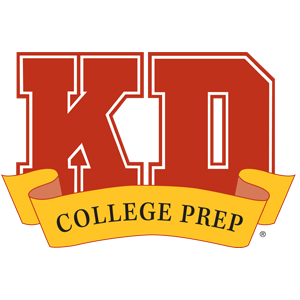
“ My feedback can only be positive, given how much you helped me get ahead with my application process. I really appreciated how much work both of you put into helping me write the best essay possible, especially reviewing my essays twice to polish them completely. In addition, I have noticed that writing my resume has released a lot of stress off my shoulder when it comes to making sure I have all the things necessary to apply to schools. ”
“ My feedback can only be positive, given how much you helped me get ahead with my application process. I really appreciated how much work both of you put into... Read more...
Claudia A. – Class of 2020

“My favorite things about KD were the mirroring it had to actual test questions, the availability, and the relationships you built with all the teachers and advisors who made the process of learning easier. I think that after you started going to a good amount of classes and the workshops, you knew every teacher, and they were always available to answer any questions that you had...Everyone was just so welcoming and made learning more engaging for the students, especially with the workshops. All of had their own unique style of teaching which never made a class boring.”
“My favorite things about KD were the mirroring it had to actual test questions, the availability, and the relationships you built with all the teachers and advisors who made the process of... Read more...
Rishab P. – Class of 2021
“I want to thank both of you so very much for making this dream come true. When I first came to KD, I wanted to get a score of 1520 or above... So many people told me it would be impossible to reach my desired score. After months of using KD's methods my scores definitely improved but hovered around 1350—still not near the score I needed but closer. After finally working with both of you during one on ones, my scores started to see heavy improvement and while I didn't get a score of 1520 or above as a single score, I got it as a superscore ... Read more...
“I want to thank both of you so very much for making this dream come true. When I first came to KD, I wanted to get a score of 1520 or... Read more...
David P. – Class of 2022
“It takes a village to raise a child—this is so true. KD College Prep staff have been nothing but uplifting to my child and to us parents through their eager attitudes to assist, in-depth guidance and unparalleled wisdom. I am in awe at the consistent level of professionalism yet genuine concern for each and every person that walks through their doors. Thank you KD staff for being great mentors for our children!”
“It takes a village to raise a child—this is so true. KD College Prep staff have been nothing but uplifting to my child and to us parents through their eager attitudes to assist, in-depth guidance and unparalleled wisdom. I am in... Read more...
Gloria D. – Daughter, Class of 2021

“I attended KD for the last 3 years, and I was blessed with the opportunity to take the SAT ® test one last time last month. I got a 1430 on the test. I wanted to take the time to say I have finished college applications, and I would love to thank all the teachers and aides at KD for giving me the score that I got on the test. Without the extra practice, I wouldn't have been able to get through to the score I got. These past 3 years went by so fast, and it is so fun to look back at where I started and how much I have come out with flying colors. Thank you so much!”
“I attended KD for the last 3 years, and I was blessed with the opportunity to take the SAT ® test one last time last month. I got a 1430 on the test. I wanted to take the time to say I... Read more...
Kareena A. – Class of 2021

“I just wanted to say thank you to KD for all the help and support you’ve given over the past couple years! I was able to get the scores I wanted for the PSAT, SAT ® , and ACT ® tests. The resources were very helpful, and the individualized assistance I received from teachers were what really supported my learning. Special thanks to Ms. Barwick and Mr. Hoffman!”
“I just wanted to say thank you to KD for all the help and support you’ve given over the past couple years! I was able to get the scores I wanted for the PSAT, SAT ® , and ACT ® tests. The resources were... Read more...
Advika R. – Class of 2022

“I shifted toward taking practice tests and going to workshops because I felt those were the best ways to apply the concepts (I was) learning in class. I started applying the tips and tricks that the teachers were showing me in class. In conjunction, those two things helped me raise my score a lot because I was not a math kid before KD or high school. The repetition and being able to practice in a non-stressful environment and simulating that testing experience is something that was very beneficial for me... “The college counseling team was super patient and honest about the work I was submitting. I know for a lot of kids, it’s hard to articulate who you are through 250-300 words. It was definitely... Read more...
“I shifted toward taking practice tests and going to workshops because I felt those were the best ways to apply the concepts (I was) learning in class. I started applying the tips and tricks that the teachers were showing me in... Read more...
Blaine W. – Class of 2021

“Both of my sons have been guided by KD College Prep counselor Steve Peifer on their journey to finding the right college for them, and we could not have had a better experience and outcome. My oldest son is now a rising junior at the University of Miami, and my youngest son is an incoming freshman at Vanderbilt University. Steve’s help in navigating the complicated college landscape and finding the BEST FIT for my two sons is what has made this resource invaluable. “What made the biggest difference for my two sons was the depth and breadth of knowledge Steve has of the many universities and colleges in the U.S. First, by getting to know my kids on a one-on-one basis, he was able to... Read more...
“Both of my sons have been guided by KD College Prep counselor Steve Peifer on their journey to finding the right college for them, and we could not have had a better experience and outcome. My oldest son is now a... Read more...
Julio M. – Parent
“My daughter loved the program—the program materials and the teachers both online and in person. She participated in a year of online and a year of in person. It was incredible enrichment and helped her keep her skills sharp over the summer. She liked being challenged academically, and she loved taking classes with high school students who were focused on their college goals. These students were also excellent role models! The lessons were especially important during the pandemic when it wasn’t a typical middle school experience.”
“My daughter loved the program—the program materials and the teachers both online and in person. She participated in a year of online and a year of in person. It was incredible enrichment and helped her keep her skills sharp over the... Read more...
Beth L. – Advanced Start™ Parent

“I wanted to say thank you to all of the teachers and directors at KD for helping me get a great score on the SAT ® test. I started with a 1250 on the first KD test I took, and I got a 1530 on the December 5th SAT test. KD played a huge role in this, and I just wanted to say thanks to everyone there for helping me achieve this.”
“I wanted to say thank you to all of the teachers and directors at KD for helping me get a great score on the SAT ® test. I started with a 1250 on the first KD test I took, and I got... Read more...
Vyom S. – Class of 2022
"Our twin 16-year-old boys used KD College Prep to study/practice for the PSAT test, and we believe the classes and coaching were invaluable. Very professional and concise. Worth every penny!"
Jerry – Sons, Class of 2022

“I'm writing to thank the KD team for all the help and guidance over the last couple of years! All the resources provided were very useful to me and helped me achieve the scores I was aiming for on the PSAT, SAT ® , and ACT ® tests (1520, 1580, and 34). I really appreciate everyone's willingness to be flexible and accommodate my requests!”
“I'm writing to thank the KD team for all the help and guidance over the last couple of years! All the resources provided were very useful to me and helped me achieve the scores I was aiming for on the PSAT,... Read more...
Mithra A. – Class of 2022

"The resources that KD offers have greatly prepared me for the college admissions process. Without KD, I would not have been this prepared and confident... I am a rising senior, and I ended up receiving a 1570 on my SAT ® test (third time) and a 35 on my ACT® test (first time). I remember the first ever practice test I took for the SAT test was a 1230 (about 1.5 yrs ago) and the first ever practice test I took for the ACT test was a 31 or 32 (about 6 months ago)."
"The resources that KD offers have greatly prepared me for the college admissions process. Without KD, I would not have been this prepared and confident... I am a rising senior, and I ended up receiving a 1570 on my SAT ® test... Read more...
Elise P. – Class of 2022
“I want to thank KD College Prep for helping both of my kids over the last years reach successful outcomes on their SAT ® and ACT ® scores, which helped them get into great colleges. I found the college prep class for parents very informative and helpful during the process as well. My son (Jacob) graduated in 2018 and got a 32 on the ACT test. got accepted into Texas A&M but chose Baylor for Health Sciences. My daughter (Morgan) graduated in 2020 and got a 1450 on the SAT test and a 32 on the ACT test. got into an Ivy League school (Cornell) for Engineering. Both my kids say that they apply the test taking skills they learned at KD Prep to... Read more...
“I want to thank KD College Prep for helping both of my kids over the last years reach successful outcomes on their SAT ® and ACT ® scores, which helped them get into great colleges. I found the college prep class for parents... Read more...
Jon D. – Parent

“Coming into this whole process, I had absolutely no idea what anything was, and your help was invaluable—your encouraging words, strategic advice, and wholesome stories and jokes really got me through a stressful time! I'm still on the waitlist at Harvard and other schools, but I've really started to immerse into the Emory culture, especially their debate team. Not having to pay for college and still attend a private institution is really a dream come true, and it wouldn't be possible if it were not for you.”
“Coming into this whole process, I had absolutely no idea what anything was, and your help was invaluable—your encouraging words, strategic advice, and wholesome stories and jokes really got me through a stressful time! I'm still on the waitlist at Harvard... Read more...
Shreyas R. – Class of 2020

“The most beneficial guidance I received during my College Counseling experience was being taught that it's completely ok to not know what I want to do with the rest of my life at 17/18 years old. Steve told me that a good school will help me find my path. Also, Steve's knowledge about what colleges were wanting to see in potential admissions candidates was a huge help... “There was not one specific beneficial moment or turning point in my time working with Steve, there were many. He encouraged me during the entire application process and brought to my attention many colleges I wouldn't have considered or heard about without his help.”
“The most beneficial guidance I received during my College Counseling experience was being taught that it's completely ok to not know what I want to do with the rest of my life at 17/18 years old. Steve told me that a... Read more...
Jake W. – Class of 2020
"I'm very happy my daughter chose KD as her learning partner to achieve her goals. All the experiences with KD and the Directors there are fabulous. My daughter has improved significantly."
Zarni, Daughter – Class of 2021

"I took KD classes the summer before my junior year, and I was finished with my SAT ® test by December...The test prep classes also helped me earn the award of National Merit ® Finalist."
Claire I. – Class of 2020
"It's been super helpful, and I've noticed my scores go up both on my SAT ® /ACT ® scores as well as test scores in school... Overall, I believe this to be the best college prep that money can buy."
Gopi C. – Class of 2021

"KD helped me come up with a game plan for the colleges I wanted to attend, as well as any backups, and how to manage my time during this stressful period. They helped to ease the stress and made sure that I would be successful in whichever college I picked, and I am eternally grateful for all their help and hard work!"
"KD helped me come up with a game plan for the colleges I wanted to attend, as well as any backups, and how to manage my time during this stressful period. They helped to ease the stress and made... Read more...
Omar S. – Class of 2020
"My initial goals when I first started working with the KD Counseling crew was to compile a list of colleges that I would be somewhat interested in attending and fit my career goals. I think that this step I was by far the most concerned about. I didn’t know how exactly I should go about choosing which places to apply to and if I were to be accepted, if they would fit me. The team did a wonderful job considering my likes and dislikes and helped me compile a list of colleges that suited my tastes and would further my academic career. "After this integral first step, my focus turned towards time management and writing quality essays that would stand out to colleges. I got... Read more...
"My initial goals when I first started working with the KD Counseling crew was to compile a list of colleges that I would be somewhat interested in attending and fit my career goals. I think that this step I was by... Read more...
Nina H. – Class of 2020

"I was thankful for all the help I received from KD in preparing for my SAT ® and ACT ® exams. The workshops they offered, as well as the practice exams, gave me the tools I needed to do my very best."
Morgan D. – Class of 2020
"KDCP is a must for students wanting to stay a step ahead of the game for getting into college. My son has gained huge insight from the ACT ® /SAT ® practice workshops, practice tests, and essay class."
Tiffany – Son, Class of 2021

"KD helped to increase the efficiencies of how I took the national exams. I was also able to implement these efficiencies in my daily school studies within the IB program at PESH. I would (and have) recommend KD to those students wanting an edge on their national test scores!"
"KD helped to increase the efficiencies of how I took the national exams. I was also able to implement these efficiencies in my daily school studies within the IB program at PESH. I would (and have) recommend KD to those students... Read more...
Daniel J. – Class of 2020
"Not only have I been able to significantly improve my test scores, I have learned a tremendous amount of information about the college application process due to complimentary events that KD offers."
Sam H. – Class of 2020

"I came to KD the summer before my senior year with only my determination and big goals! KD provided me with the resources necessary to improve my test score to increase my chances at my dream school, Notre Dame, with the help from amazing teachers and staff. I am so grateful for KD!"
"I came to KD the summer before my senior year with only my determination and big goals! KD provided me with the resources necessary to improve my test score to increase my chances at my dream school, Notre Dame, with the... Read more...
Matt K. – Class of 2020
"I started classes at KD the summer before 9th grade. I...made a perfect score on the PSAT (earning the National Merit ® scholarship) and, after taking the SAT ® test only once (a relief!), scored a 1590/1600."
Thomas D. – Class of 2019

"In just one year, I was able to raise my score by 300 points and get into my dream school."
Piper F. – Class of 2020
"Having our recent GHS graduate attend KD was life changing. It provided our son with choices and opportunities that he might not have had otherwise."
Kathy – Son attends Mizzou

“I came to KD College Prep after already using another tutoring service which we were not seeing results with. Due to time constraints, the traditional classes were not going to be feasible for my daughter. They took the time to figure out a personal plan that would work for her and were always available for our questions and helping her reach her goals. Every employee from the managers to the students working at their locations are top notch.”
“I came to KD College Prep after already using another tutoring service which we were not seeing results with. Due to time constraints, the traditional classes were not going to be feasible for my daughter. They took the time to figure... Read more...
Tracy – Daughter, Class of 2020
"The KD College Prep course not only provided test practice but also motivated her to work hard for her college applications. It gave her the confidence to dream big!"
Prema – Daughter attends Rice
What’s Your Summer Prep Plan?
Save Up To $350*
On complete™ program.
*Restrictions apply. See discount page for details. Offer ends April 30, 2024.
More From Forbes
4 secrets to college admissions success.
- Share to Facebook
- Share to Twitter
- Share to Linkedin
LOS ANGELES, CA - APRIL 23: A student walks near Royce Hall on the campus of UCLA on April 23, 2012 ... [+] in Los Angeles, California. According to reports, half of recent college graduates with bachelor's degrees are finding themselves underemployed or jobless. (Photo by Kevork Djansezian/Getty Images)
Navigating the complexities of college admissions can be daunting. As mentors and leaders in empowering youth, we have distilled our experiences into four actionable steps that can serve as a compass for your journey to college acceptance.
Build Your Community With Intention
Your network isn't just a collection of contacts; it's a community of mentors, peers, and professionals who resonate with your aspirations. Consider Charles Xi, an emerging swim tech entrepreneur. His ambition to create a biometric wearable for swimmers could have remained an unfocused dream without the right guidance. By connecting with a professor specializing in thermal fluids at Columbia University, Xi honed his ideas and crafted a patent-worthy design paper. It's crucial to engage with individuals who not only broaden your perspective but also challenge you to refine your goals.
Like Xi, you can take action to identify and reach out to potential mentors in your field of interest. Make sure to utilize your LinkedIn account and be proactive in seeking internships or research opportunities that align with your aspirations. Engage and build relationships with others in order to improve your impact and yourself. And remember, when it comes to building relationships, make sure to focus on your ability to give just as much as what you hope to get.
Define Your Impact Through Intellectual Vitality
Intellectual vitality goes beyond academic prowess; it's the spark of curiosity that drives you to explore and contribute meaningfully. Take Anthony Smith, a student passionate about economics without practical experience. By collaborating with an MIT Mathematics lecturer, Smith delved into financial data analysis, learned new statistical software, and translated classroom knowledge into practical skills. Colleges seek students who demonstrate this kind of intellectual initiative.
You can replicate this success by creating a substantial research project or founding your own nonprofit or business. Julia Howe did this when she created the Hitting The Wall podcast. Her experiences as an endurance athlete and her participation in an entrepreneur program, prompted her to explore the possibility of taking personal experiences and turning them into a business that could help other athletes. You can seek out programs, courses, and support that match you with experts to undertake significant projects. Document your learning process and outcomes as tangible evidence of your intellectual vitality.
WWE WrestleMania 40 Results Winners And Grades From Night 1
Wwe wrestlemania 40 results and everything that happened as the rock pins cody, winning 1 3 billion powerball ticket sold 4th largest ever here s how much the winner could take home, know your audience and craft your narrative accordingly.
Understanding what colleges value in an applicant is pivotal. Every institution has its unique ethos and set of priorities. Students can spend efforts gaining press and recognition to enhance their impact outside of the classroom and craft their narrative. Further, students can deepen their understanding of colleges by connecting directly with individuals on campus to support their high school initiatives. For example, three of our students with an interest in history got a museum internship at their top-choice colleges, which was very helpful for building their candidacies and sharing a personal vantage point into university life and environment.
An important part of preparing for the application process is researching your target colleges extensively. Know their mission statements, department strengths, and cultural nuances. Just as artists adapt to different mediums, students must tailor their applications to resonate with their chosen schools.
Take Meaningful Actions To Showcase Leadership and Initiative
Leadership isn't just about titles; it's about the impact of your actions and your ability to inspire change. And there are programs like ours that want to help you make that change. The essence of " doing WIT " is encapsulated by the entrepreneurial spirit of leadership. The core of the College Admissions X-Factor , which is the strategic framework for Dr. Legatt’s organization Ivy Insight, is living out and showcasing your built expertise and exponential impact. Ivy Insight also provides professor research mentorships that enable students to maximize their intellectual vitality ahead of the college application process.
You aren’t too young to start engaging in leadership roles within your community, whether by leading a team, organizing events, or launching a venture that addresses a social issue. Tackling real societal issues, pitching solutions to city officials and leaders, and documenting the journey through visuals and words demonstrates the initiative and influence of a true leader. Tyden Chinowsky did just that by dedicating his time to cleaning up a park area near his favorite beach. What started as a giving back project turned into the non-profit Native Del Mar . For Mike Shi, a collection of poems turned into a novel focused on the teenage mental health journey when Shi published his own book. Remember, sometimes taking small actions can lead to big impact. It’s just important to start.
And when it comes to taking what you’ve done and articulating it in your applications, make sure to reflect on how these experiences have shaped your character and problem-solving abilities.
Embarking on the path to college requires a blend of introspection, strategic action, and purpose-driven engagement. By building your network, showcasing intellectual vitality, tailoring your narrative to your audience, and demonstrating impactful leadership, you can distinguish yourself as more than a candidate—you become a story worth investing in and remembering. Remember, college admissions officers are not just looking for students; they are looking for future alumni who will contribute to the world and bring further acclaim to their alma mater.
So, document your journey, curate your experiences, and when the time comes, present a compelling narrative that's uniquely yours. Also, don’t forget that you are the driver in this process. You get to choose the college that is the right fit for you.

- Editorial Standards
- Reprints & Permissions
Please turn on JavaScript in your browser It appears your web browser is not using JavaScript. Without it, some pages won't work properly. Please adjust the settings in your browser to make sure JavaScript is turned on.
When are the application deadlines for college.
Senior Associate, JPMorgan Chase

Many prospective college students prepare for months to ensure their college applications are filled out just right. From preparing essays , getting test scores, and asking for letters of recommendation, it can take a lot of energy to make sure you have all the required information to complete a college application.
But when are college applications due? Keep reading as we break down the ins and outs of college application deadlines, along with questions you may have about these deadlines.
When are college applications due for “early decision”?
Most colleges have early decision and early action deadlines that predominantly fall on November 1 for the next academic year. For example, if you’re applying early decision or early action to be in the incoming freshmen class of 2025, the application deadline will likely be on November 1, 2024.
If you apply early decision, and get accepted by a school, you must attend. For early action, you’ll likely receive an admission decision by February of the following year, but you can take a couple of months to decide if you want to attend or not – your decision isn’t binding.
Even though November 1 is often the norm for colleges who offer early decision and early action application options, this deadline can vary by school, so make sure to check the deadlines for each school you’re interested in and make a note of them.
When are college applications due for “regular decision”?
According to College Board, a national nonprofit that helps students with college admissions, you’ll likely see deadlines for regular decision applications between the months of January and February. Many schools have a deadline of January 1, if it’s helpful to keep a general deadline in the back of your mind. So, for instance, the regular decision deadline to apply to college for the fall of 2025, would be January 1, 2025.
Just like with early decision and early action, this’ll vary by school, so make sure to check the exact deadline for each school you’re interested in applying to.
When are college applications due for transfer students?
If you’re considering transferring schools in the next academic year, you’ll want to keep an eye out for transfer specific deadlines. Some schools have the same application deadlines whether you’re applying to transfer or are applying as a first-year student, while others have different deadlines for transfer students. Because of that, you’ll want to check the deadline for each school you’re interested in applying to as a transfer student.
Many colleges and universities have a transfer application deadline of March 1 for the next academic year.
Common FAQs about college application deadlines
When’s the common app due.
Students utilize the Common App to apply to different schools. This standardized admission application is supported by over 1,000 U.S. colleges and universities and allows you to share your personal information, essays, activities, grades and more in one platform to the schools of your choice.
While the app’s purpose is to simplify the college application process, the deadline to submit the Common App to the schools you want to apply to is based on the individual schools’ deadlines. The Common App opens to students on August 1 for the next academic year.
Can you send college applications after the deadline?
Whether or not you can submit college applications after the deadline will depend on the school. Some will accept late college applications in rare circumstances such as a family emergency, medical illness, or natural disaster. You'll want to contact the school’s admissions office as soon as possible to find out if you can submit a late college application.
Can you send college applications before receiving teacher recommendations?
If you’re applying to colleges through the Common App, you can send your application to schools before submitting letters of recommendation. If a school doesn’t use the Common App, or you’re applying to a school via its individual application regardless, you’ll want to ask the school’s admissions office if this is permissible.
Can you send college applications before receiving SAT or ACT scores?
Whether or not you can send college applications in before supplying ACT or SAT scores with an application will depend on the school. Most colleges do allow students to send updated SAT or ACT scores after you’ve submitted your application, though.
It’s also important to note that some schools don’t ask for or make it optional for students to supply standardized test scores like SAT or ACT scores with their applications.
Final thoughts
You may feel nervous when it comes to preparing your college applications , but staying on top of deadlines is one way you can feel more at ease. Because many schools have different deadlines, you may consider jotting the deadlines down for the schools you’re considering applying to months in advance, so you’ll be ready when the deadlines arrive.

College admissions is a stressful process. Here are some tips for managing mental health.
T he college admissions process can be inherently stressful , made worse by decreasing acceptance rates at top schools and high tuition everywhere .
The uncertainty is hard enough on its own: Teens might find it difficult to make decisions when they don’t know what they want to do with their lives, and those who have a plan might feel they lack control of the outcome regardless. The pressure can creep in well before before reaching a fever pitch senior year, when the apps become a daunting task on top of homework, extracurriculars and other obligations.
Mental health experts want students to know that not everyone experiences college admissions the same way, and some may struggle more than others. It’s temporary, and many elements of the process can be helped through good planning and self-care.
IN-DEPTH: Teen mental health is in the crosshairs of college application season
Here are some tips for managing a difficult application season.
Make a routine
Applicants will likely benefit by mapping out a schedule and writing down personal and official deadlines. From there, breaking the apps’ larger elements into more manageable tasks can go a ways in preventing procrastination, according to therapists at Charlie Health, a mental health provider for teens and young adults.
Seniors might find themselves less stressed in the long run if they make college applications a part of their routine. It helps to structure essay writing and other elements of the apps around existing activities, allotting some time each day or on set days to knock out those smaller tasks one by one, said Katherine Gallagher, a pediatric psychologist at Texas Children’s Hospital.
Don’t overdo it, Gallagher cautioned. Students should stick to the time they have allotted for applications and set them aside when that time is up. Then, start fresh the next day.
STRESS TO SUCCESS: Read the Chronicle's occasional series on college admissions
Take breaks
Students should schedule fun activities just as much as they schedule their obligations, Gallagher said.
Self-care is an important part of relieving stress. Seniors should try to sleep eight hours a night, move around and make time for things that make them happy, according to professionals with the JED Foundation , a mental health nonprofit.
Avoid comparisons
It’s easy to get discouraged when classmates are achieving higher grades or applying to more elite universities. Those comparisons are unhelpful, and they detract from the reality that the college search is a highly individualized process, admissions and mental health experts have said. Many institutions will provide students with a great education, not just the ones that are most highly sought after.
AN UPHILL BATTLE: A look at the challenges first-generation students face in the competitive college application process
“There are about 4,000 colleges in the United States,” JED Foundation officials said in a blog post. “Although some may have higher name recognition or be harder to get into, that doesn’t mean they’re the best fit for you.”
Seek guidance
School counselors are there for a reason, JED officials said. They want to help students through the college application process, and they can be useful when talking through finances, weighing college options, writing essays or structuring application checklists.
Manage expectations
Many admissions professionals encourage students to make realistic goals and apply to a good mix of schools – ones they know they can get into and ones that are more of a reach. Being prepared for all outcomes can help lessen any disappointment.
Be ready for the annoying questions
JED officials advise students to have a couple stock answers at the ready when people ask them questions that bring anxiety, such as, “Where are you going to school?”
HIGHER ED: Pro tips from college admissions advisors Texas seniors should know
Quickly share the top two or three schools that you hope to attend, or simply say where you’re at in the process. It’s OK to redirect the conversation and say that you’d rather not dwell on the topic.
Parents can help, too
Caregivers should check on the overall wellbeing of their children and not just their application status, according to Consuelo Corazon Cagande, division chief of the Community Care and Wellness Program at Children’s Hospital of Pennsylvania. It’s a good idea to aid childrens' self-care by arranging family outings or asking to go on walks, she said.
Parents and caregivers can also help where they’re able in the admissions process, by offering to brainstorm essays or helping set a schedule of priorities, Cagande said in a blog post .


2024-2025 FAFSA® Workshops
Join us for our comprehensive FAFSA® (Free Application for Federal Student Aid) Workshops for the 2024-2025 academic year, tailored to guide students through the intricate process of applying for federal, state, and college-specific financial aid.
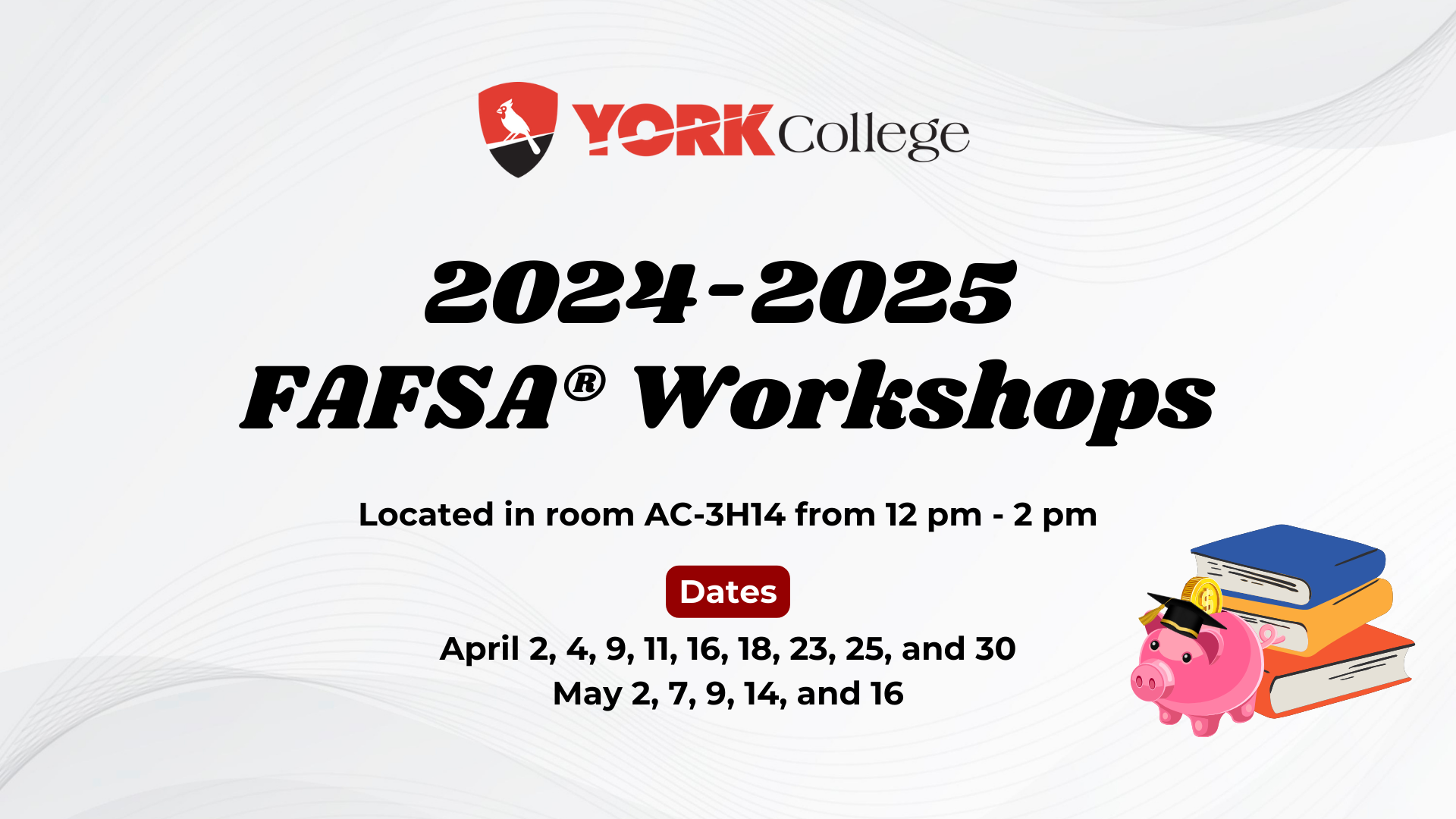
Why Attend?
- Expert Guidance: Receive step-by-step assistance from experienced financial aid counselors who can help navigate the complexities of the FAFSA® application.
- Maximize Your Aid: Learn strategies to accurately present your financial situation, potentially increasing your eligibility for aid.
- Personalized Support: Get answers to your individual questions and concerns in one-on-one sessions or through interactive Q&A segments.
- Resourceful Materials: Access exclusive resources and checklists to prepare for the application process and meet all necessary deadlines.
- For Everyone: Whether you're a first-time applicant, a returning student, or supporting someone through their application, our workshops offer valuable insights for all.
Financial Aid
Consumer Information Diversity and Compliance Employment Public Safety
Directory Accessibility Website © 2024
York College / CUNY 94 - 20 Guy R. Brewer Blvd. Jamaica, NY 11451 P: 718-262-2000

How to Complete the FAFSA
Fafsa application.
If there’s one thing you should do this year regarding financial aid, make it the FAFSA®. To apply for most financial aid─including federal and state student grants, work-study, and loans─you’ll need to complete the Free Application for Federal Student Aid (FAFSA). There are many free resources to help you.
Where can the FAFSA be found?
Complete, submit, and update your application online at studentaid.gov . It’s the easiest way to fill out the FAFSA and apply for federal aid.
When will the FAFSA become available?
If you’re a senior in high school, fill out your required financial aid applications in the fall and winter of your senior year. If you’re already in college, you may have later financial aid deadlines. Check your college’s financial aid website for application deadlines. Remember: You may need to apply for financial aid every year you plan to attend college.
Before You Apply
Complete income tax returns. .
Beginning with 2024-25 FAFSA, all persons included on the FAFSA will be required to use an Internal Revenue Service (IRS) Direct Data Exchange to share federal tax information to complete the FAFSA or confirm that you or your parent didn’t file a federal tax return. This change makes it easier to complete the FAFSA and reduces the number of questions your family will need to answer. To take advantage of this new and improved process, keep in mind that your family’s 2022 taxes must be filed before beginning your FAFSA application.
Create an FSA ID.
Before you start your FAFSA, you’ll need to create an FSA ID, which is a username and password used to complete the FAFSA, take out loans, and log in to all Federal Student Aid websites. To create an FSA ID as a student, you’ll need your social security number (SSN), name, date of birth, and a unique email address and password, as well as a multifactor authentication option of your choice. If required, parent(s) (regardless of whether they have an SSN or not) will create their own account using their own unique email address and password. Set up your username and password at least a week before you start your FAFSA. Learn how to create an FSA ID .
Collect documents.
See a list of the documents you need to get started.
Completing the Application
Be sure to complete your FAFSA soon after it becomes available. Filling out your FAFSA as early as possible ensures you’ll be considered for all types of federal financial aid. In many cases, you’ll also be considered for financial aid funded directly by colleges and universities. Be sure to check application requirements and filing deadlines posted on financial aid websites. Applications in addition to the FAFSA may be required to receive state or institutional aid.
For help filling out your FAFSA, go to Federal Student Aid’s Filling Out the FAFSA Form . It has a detailed question-by-question guide to filling out the FAFSA.
Provide consent on the FAFSA.
Consenting to allow the IRS to share your tax information with the FAFSA is required to be eligible for federal financial aid. This is required even if you or your parent(s) or guardian(s) didn’t file taxes, filed taxes outside of the Unites States, or don’t have an SSN. If you or your parent(s) or guardian(s) don’t provide consent, you won’t be eligible for federal financial aid.
What Happens After You Apply
Once you submit the FAFSA, your family’s financial information will be processed, and your information will be shared with the colleges you listed on the form.
It may take several weeks for your selected schools to receive your FAFSA information after you submit. Keep an eye on your email to ensure you don't miss any important notifications from schools.
Visit Federal Student Aid for more information after you submit your application.
The FAFSA Submission Summary
Once your FAFSA has been submitted and processed, you’ll receive an email letting you know your FAFSA Submission Summary is ready to review on studentaid.gov. Your FAFSA Submission Summary contains a summary of the information you entered on the FAFSA, your Student Aid Index (SAI), estimated federal student aid, and any issues you need to address.
Review the FAFSA Submission Summary’s Next Steps section carefully for errors. Follow directions for making and submitting corrections. Be sure to submit corrections promptly so your colleges have the most up-to-date information.
Student Aid Index (SAI)
At the bottom of the Eligibility Overview section of the FAFSA Submission Summary, you'll find a figure called the Student Aid Index (SAI). Your SAI is a number that’s calculated using information you provide on the Free Application for Federal Student Aid (FAFSA). The SAI is used to determine your eligibility for federal financial aid programs, like the Federal Pell Grant and federal student loans. It’s sent to the colleges you listed on your FAFSA. These colleges will use your SAI to create your financial aid offer or award. Learn more about the SAI .
Other Financial Aid Forms
After you complete the FAFSA, make sure you submit any additional financial aid forms your colleges require. For example, some colleges require you to submit the CSS Profile or their own institutional forms, while some states may have additional state financial aid applications.
- Go to FAFSA
CSS Profile®
- Go to CSS Profile
Related Articles
- India Today
- Business Today
- Reader’s Digest
- Harper's Bazaar
- Brides Today
- Cosmopolitan
- Aaj Tak Campus
- India Today Hindi
NTA to start CUET UG 2024 application correction process today. Details here
Here is the step-by-step guide to editing the cuet ug 2024 application form..
Listen to Story

The National Testing Agency (NTA) will initiate the correction window for the Common University Entrance Test, CUET UG 2024 today. Registered candidates for CUET 2024 can edit or modify their application details until the closing date of the CUET correction window 2024, which is April 7. Changes can be made through the candidate's login credentials within the CUET 2024 correction window.
The CUET 2024 correction form facilitates adjustments to "student information," and applicants also have the option to include additional institutions and CUET courses. For this year's entrance exam, the NTA has introduced two additional papers: fashion studies and tourism. The CUET UG 2024 examination is scheduled to take place from May 15, covering a total of 63 subjects, comprising 33 languages, 29 domain-specific papers, and one general test.
HOW TO EDIT CUET UG 2024 APPLICATION FORM
- Visit the official website at cuet.samarth.ac
- Navigate to the 'Sign In' option.
- Provide your application ID, date of birth, or password
- Click on the "Login" button
- Access the CUET correction window 2024 link. A new window displaying the application form will emerge
- Rectify any inaccuracies in the appropriate fields before proceeding to submit
- After making modifications, save the updated version and print it out. Keep the hard copy of the updated application form until the exam day.
DIRECT LINK TO APPLY
CUET UG is scheduled to be held from May 15 to May 31, 2024, as initially planned. UGC Chairman Jagadesh Kumar has affirmed that despite the Lok Sabha election schedule, there will be no changes to the exam dates.

IMAGES
VIDEO
COMMENTS
Free shipping on qualified orders. Free, easy returns on millions of items. Find deals and low prices on college admission guide at Amazon.com
Request recommendation letters. Provide a résumé for reference. Send thank-you notes to recommendation writers. Start the essay drafting and revision process 2 months prior to the application deadline. Draft initial essay. Proofread essay for spelling and grammar. Have 2 people read your essay. Revise your essay.
The college application process can be intimidating and complex leaving you wondering where to start. Get answers to common questions about deadlines, essays, applications and more.
Each year, more than 1 million students apply to more than 1,000 Common App member colleges worldwide through our online college application platform. Learn more about applying through our first-year application by following our step-by-step guide below. Create a Common App account. 1. Gather materials. 2.
Keep these tips in mind throughout the college application process: 1. Start early: Give yourself plenty of time to research colleges, prepare for tests, and complete applications. This is especially true for your essays! Procrastination can make you stressed and tarnish the quality of your work. 2.
Our college planning tools will guide you through every step of the college application and admissions process. Invest in your future We know it can seem overwhelming, but you're not the first to question if you'll find the right college, succeed and get the career you want.
Step 1: Write Down What You're Looking For. Before anything else in the college application process, you need to identify what you're looking for in a college. You need to consider: Your potential or intended major. Size of the school. Location. City vs town vs rural.
Learn what you can expect from each stage of the college admissions process, and find out what students on our College Hopes & Worries Survey have to say about applying to college. 1. College Planning. Your path to college begins your first year in high school as you make yourself college ready. Grades and test scores are important factors in ...
In this article, we'll describe all of the tasks you should complete to maximize your chances of getting into the best possible college, including how to do the following: Choose the best classes to take during high school. Prioritize getting good grades. Excelling in extracurriculars. Acing standardized tests.
If you include standardized tests, this process can begin in the spring of your junior year. 1. Know your application deadlines. At the very beginning of your college application process, you should start compiling a list of where you want to go, including dream schools, target schools, and safety schools. Dream schools are those you'd attend ...
Part 4: The College Application. Surprisingly, filling out the actual college application is one of the easiest parts of this whole process. It's simply a matter of filling out multiple forms about your academic and extracurricular profile. While that may seem tedious, it is definitely not challenging. Before you start filling out your ...
The Common Application streamlines the application process, making it possible for a student to complete and submit a single application to up to 20 schools. This can save you a significant amount of time and money, and it can substantially improve your odds of getting accepted to multiple schools.
NACAC's favorite perennial resource, the Guide to the College Admission Process, has been updated for 2022 to reflect current trends, tasks, and additions to the college search and application experience. This guide offers sound advice on every step of the process, from getting in the right mindset, to researching universities, to completing application materials.
The college admissions process is more competitive and complicated than ever, and the last two years have seen a lot of disruptions. Our founder Vinay Bhaskara will provide a comprehensive overview of college admissions, walking through how the admissions process works, the types of things that colleges want to see in a successful application ...
The college application process is an exciting and stressful time in your child's life and for you as a parent. After all, you've offered your support throughout the educational journey up until this point, and you want to ensure your child makes the most of the experience and ultimately choose the right college.
1 Understanding College Admission Requirements; 2 Creating a College Application Checklist. 2.1 Creating a College Application Checklist: Sample Table; 3 Crafting an Outstanding College Application Essay. 3.1 1. Brainstorm; 3.2 2. Outline; 3.3 3. Be Specific; 3.4 4. Show, Don't Tell; 3.5 5. Proofread and Revise; 4 Navigating College ...
Follow these steps when applying to college: 1. Research Colleges. Towards the end of your junior year, review the list of colleges you're considering. Plan to apply to roughly 5-8 schools, including your dream school and one or two safe schools. Research and keep detailed notes about each of those colleges' application requirements ...
A comprehensive guide on the college application process, helping students understand the requirements and take the necessary steps to apply successfully. ... The college application process is a multi-step journey that begins in junior year and culminates in senior year of high school. Here is a rundown of what you should do each semester:
Once you have your list, create individual applications for each school, usually through platforms like the Common App or Coalition App. The process may vary, but generally, applications include supplemental essays, a personal statement, letters of recommendation, a resume, and your high school transcript.
The college application process involves many steps. Follow our 10-step guide to make sure no stone is left unturned. Coppell (972) 906-8825 - Flower Mound (214) 285-3500 - Frisco (469) 242-0860 - Plano (972) 867-6544 - Virtual (972) 906-8825 ... Start by following this quick guide to building a college resume. Step 6: Writing Essays.
An important part of preparing for the application process is researching your target colleges extensively. Know their mission statements, department strengths, and cultural nuances. Just as ...
Many schools have a deadline of January 1, if it's helpful to keep a general deadline in the back of your mind. So, for instance, the regular decision deadline to apply to college for the fall of 2025, would be January 1, 2025. Just like with early decision and early action, this'll vary by school, so make sure to check the exact deadline ...
Here are some tips for managing mental health. The college admissions process can be inherently stressful, made worse by decreasing acceptance rates at top schools and high tuition everywhere. The ...
Join us for our comprehensive FAFSA® (Free Application for Federal Student Aid) Workshops for the 2024-2025 academic year, tailored to guide students through the intricate process of applying for federal, state, and college-specific financial aid.
Be sure to check application requirements and filing deadlines posted on financial aid websites. Applications in addition to the FAFSA may be required to receive state or institutional aid. For help filling out your FAFSA, go to Federal Student Aid's Filling Out the FAFSA Form. It has a detailed question-by-question guide to filling out the ...
Access the CUET correction window 2024 link. A new window displaying the application form will emerge; Rectify any inaccuracies in the appropriate fields before proceeding to submit; After making modifications, save the updated version and print it out. Keep the hard copy of the updated application form until the exam day.